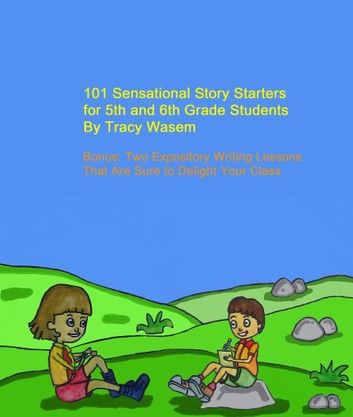Story starters grade 5: Story Starters for Kids and Blank Creative Writing Templates
Posted on100 Writing Prompts for Kids: Ideas and Story Starters to Get Pens Moving Faster Than Ever
100 Writing Prompts for Kids: Ideas and Story Starters to Get Pens Moving Faster Than Ever — 3P Learning
3P Learning
09 November, 2020
by Jackson Best
Stuck for writing prompts that will inspire your students to fill their pages?
We’ve got you covered. Here are 100 writing prompts that will get heads down and pens moving faster than ever.
- Write about a special bond you have with an animal.
- Describe your dream bedroom. What would be in it and why?
- You’re trapped on a desert island with only the things in your schoolbag.
What do you do?
- Your pet is in charge of you for a day. What will they make you do?
- Write about a place that is important to you.
- When I discovered there was treasure buried in the backyard I…
- A friend from another country is going to swap schools with you. Write a letter telling them what to expect.
- The moment I woke up, I knew something wasn’t right…
- Write a letter to your teacher telling them why your favorite book should be studied in class.
- You get to be your favorite animal for a day. What do you do?
- Write a story where all your favorite characters from books and movies meet up. What do they get up to?
- Write an alternative ending for your favorite book or movie.
- Describe a day in your life if you were famous.
- Write a story where the main character faces their biggest fear.
- I looked out the window and couldn’t believe what I saw…
- You’ve got a magic pen. What can it do and how will you use it?
- Write a story that includes the sentence, “I should have seen this coming.
”
- You discover a trapdoor in your house. What lies beneath?
- Describe a mistake you made and what you learned from it.
- Write a speech that tells the whole school why you should be a student leader.
- Write a letter to a younger sibling telling them everything they need to know about being in Grade 4.
- You can choose one new subject or sport to be taught at school. What do you choose and why?
- Homework should be banned. Explain why you agree or disagree with this statement.
- If you could travel through time, would you go to the past or the future? Explain why.
- Write about a famous person and why you admire them.
- Write about the best gift you’ve ever received. What made it so amazing?
- The dinosaurs are back, and they’re in your street. What happens next?
- If I could visit another planet I would go to…
- You dig the world’s deepest hole. What lies at the bottom?
- You’re the teacher for the day.
What will you do in your lesson?
- If I could keep any animal as a pet I would choose… because…
- Your house has a secret and mysterious history. Write a story about what happened before you lived there.
- If I had a superpower it would be…
- The most interesting thing I’ve learned this year is…
- You get to change the school uniform. What would you make everyone wear and why?
- You get transported into the last video game you played. Where are you?
- If you could invent anything, what would it be?
- If I could only eat one food from now on it would be… because…
- You’re a detective working on a big, important case. What is it and how do you solve it?
- If I could have any job in the world it would be…
- Write a story where the main character is hiding a big secret.
- An alien arrives at your house. What happens next?
- You climb to the top of the tallest tree in your neighborhood. What can you see that you couldn’t see from down below?
- Write a story where a boring, everyday experience gets turned into a big adventure.
- Describe what you look for in a friend.
- Who lives in the clouds and what do they do up there?
- What is your favorite holiday and why?
- It started out as just an ordinary day, but then…
- Write about a family member who has an interesting story to tell.
- You’re organizing the ultimate birthday for a friend. What have you planned for them?
- You can breathe underwater and swim like a fish. What will you do with your new power?
- Write a story about a lost city.
- What has someone taught you that you will never forget?
- You get sucked into the pages of your favorite book. What happens when you join the story?
- This year my goal is to…
- Write a thank you letter to a person who has helped you in some way.
- What is your favorite season and why?
- You work at the zoo and the elephants have broken loose! What will you do?
- “You’ve got the wrong person – it wasn’t me!” Continue this story…
- Write about a time when you felt a strong emotion (e.
g. happy, sad, angry, scared). What made you feel this way?
- Write a story where a character discovers something surprising.
- If I could change one thing in the world it would be…
- Describe the oldest person you know.
- Imagine your life on a farm. What would be on it and what would you do?
- Write a story about a journey at sea.
- What is your favorite room in your house and why?
- You have $1000 to spend. What will you buy?
- You’ve grown wings and now you can fly. Where will you go?
- What is a food you find really disgusting? Explain why it’s so bad.
- Write about a journey to the top of a huge mountain.
- You’re the mayor of a new town, and now you want people to move there. How will you convince them to join you?
- Would you rather live in a cold, snowy place, or a hot and sunny place? Why?
- What would be in your dream playground?
- You’re starting a band. What instruments will you need and what sort of music will you play?
- Write about the best ride you’ve ever been on.
- One thing I am really good at is…
- What is your earliest memory? Describe it in as much detail as you can remember.
- Write about the most fun holiday you’ve been on.
- You’re a wildlife photographer trying to get a photo of a rare animal. What animal is it and how will you find it?
- Write a story where one character must keep an important secret. Will it be discovered?
- “Don’t look down,” I told myself. But then I…
- Write a story where two people meet in an unusual way and become fast friends.
- Write a “quarantine story” set in a single house.
- Write a recommendation of a book or movie for a friend. Why do you think they would enjoy it?
- A mystery chest washes up on the shore after a storm. Write a story about what happens when it’s discovered.
- Turn one of your strangest dreams into a story.
- Write a “how to play” guide for your favorite sport.
- Write about the most delicious OR the most disgusting meal you can think of.
Make sure your reader can imagine what it tastes like!
- Every year a new person is sent to the moon, and now it’s your turn. What happens when you step out of the rocket?
- If you had a superpower, what would it be and why?
- Write a story where a holiday goes horribly wrong.
- I was terrified. Butterflies filled my stomach. But I took a deep breath and finally stepped out onto the stage…
- You’re handed a letter with your name on it. When you open it up you can’t believe your eyes…
- Write a story where someone discovers something surprising about their neighbor.
- You get to create a new holiday that will be celebrated every year. What is it called and what will people do to celebrate on this day?
- Write a story that takes place in a forest.
- There’s an old house at the end of the street hidden behind tall, dark trees. No one has been brave enough to enter, until now…
- Write a story about a snow day.
- You’re the host of a new game show.
Write about what happens in the first episode.
- Write a story where someone discovers something they aren’t supposed to know.
Categories
Writing
Simple Story Starters for Kids
Lesson Plan Inspo
Story starters for any grade level are a great way to practice writing skills.
I remember being in 4th grade, and loving creative writing lessons with my teacher. I would be transported to space, the desert, or a fancy castle. It was a chance to show my creative side in a “quiet” manner.
Being a very, very shy child, shining bright amongst my peers was uncomfortable and embarrassing. But, I could show my creativity within my journal prompts. It was a safe place for me to shine.
What If Story Starters
Writing prompts can be quick or lengthy. They can be fantasy or even scary. Use pictures or text to convey the prompt to your kids.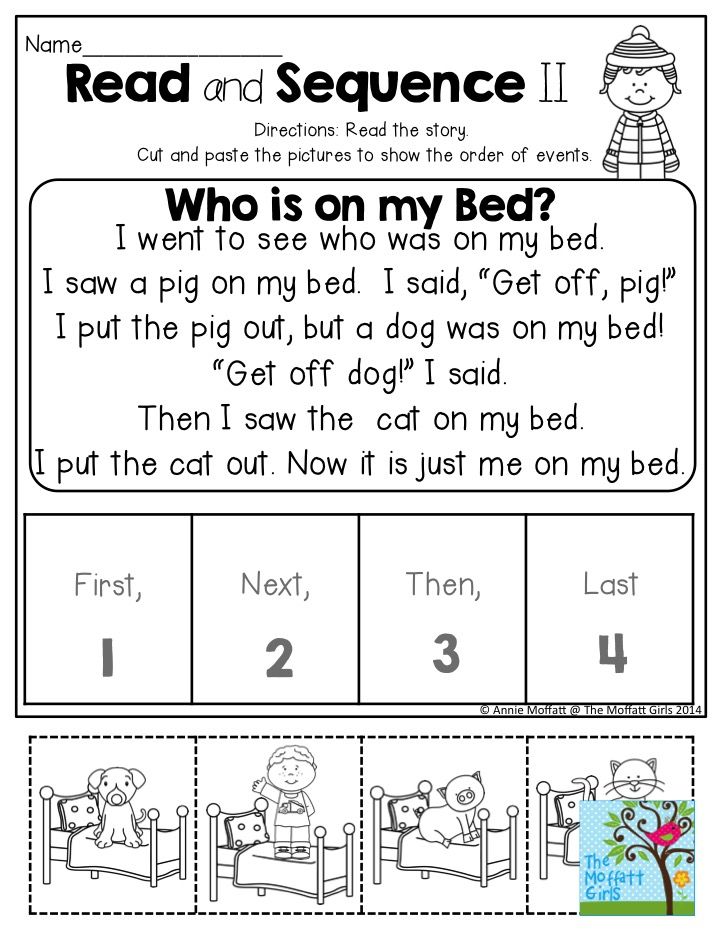
Good examples don’t have to be long and drawn out. They can be simple short morning work.
Any of these are perfect for getting students to think outside the box. Older students can free write full pages of words, while elementary children can begin by drawing pictures to convey their ideas.
What If…
- the tigers at the zoo escaped?
- it started snowing during the summer?
- the sky was green and the grass was blue?
- you found the end of the rainbow?
- you won the lottery?
- your pet suddenly could talk?
- you could only eat your favorite food everyday for the rest of your life?
- we found another planet in space that was just like ours?
- video games no longer worked?
- polar bears stopped roaring and started tweeting like a bird?
- phones only worked if they were plugged into the wall?
- squares could roll?
- people were born old and got younger every day?
- snow was made of chocolate?
- you could fly?
- everyone had a dolphin as a pet?
- socks were worn outside of shoes?
- today was opposite day?
- you could only speak in rhymes?
- everyone agreed on everything?
Star Student Story
Another idea that I have used in the past to encourage writing is a Star Student Story.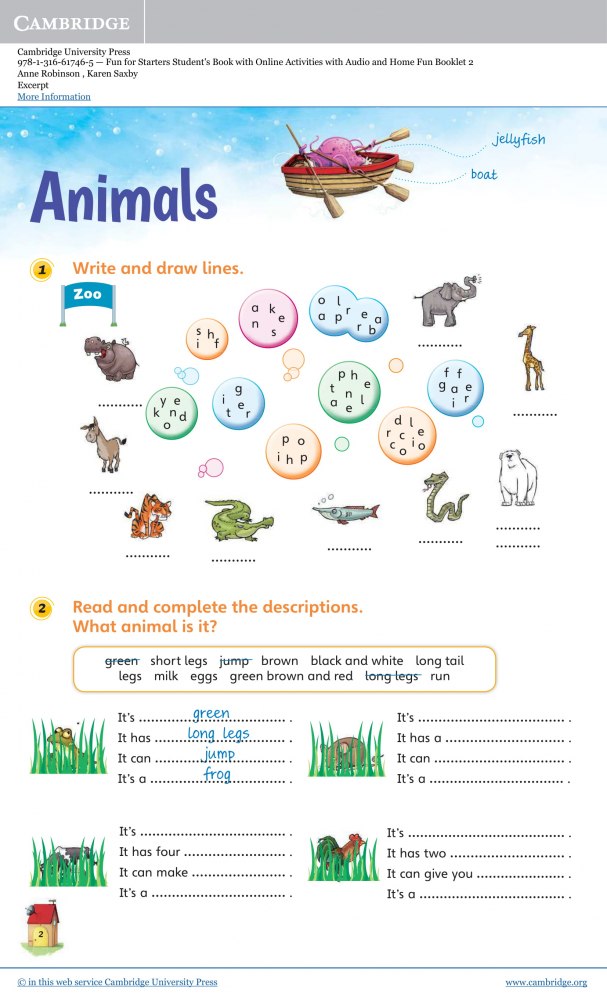
- Begin by starting the story with a one page story you have begun. It can be about anything you like. But leave it open-ended.
- Place the cover, your first page, and one additional blank lined page into a report cover folder with brads.
- Then, read the first page to the class and pass it along to the next star student.
- He or she gets a week to add on to your story on the blank page in the booklet.
- On the day due, you take the folder and read again your page, then pass along to the star student to read his or her page.
- This pattern continues each week. Several weeks in, you will have a lineup in the front of the classroom in order ready to read their page in the classroom novel. Note: It will take some time to read it through the longer it gets, but the students LOVE being a part of the story and hearing how it evolves.
- After everyone in the class has had a page added to the story, you can write the conclusion page to wrap up the writing.
- As a special touch, I always typed up each child’s page at the end of the school year and included the author’s name on the page (reasoning is because the handwriting wasn’t always easy for all to read). Then I printed it out on plain white paper and had the child use markers to add a border around the edges and add their signature to the page.
- Last – I printed color copies of the “book” and used as an end of the school year gift along with a slideshow of classroom photos.
Parents, administrators, and students loved it and it cost me nothing to give those special mementos of the school year.
Would you like premade templates for the Star Student Story Packet?
Packet includes 24 pages, 10 customizable covers for your to personalize, and is perfect for grades 2 and up! Click HERE to grab it now!
Printable Sentence Starters for Middle and High School Stories
Having printed out writing starters for middle or high school students is a great homework assignment.
This allows students the flexibility to work on the homework when there is time in their extra curricular activities, employments schedules, and around family commitments. Plus, you can expect a much longer final version.
Some fun options for those older students that you could type up on a sheet of paper and pass out:
30 Good Ideas for Short Stories for Middle Schoolers: Some ideas include sleepovers, field trips, and dream cars. Great for this age group.
Writing Prompts: This site has an entire list of first or last sentences for the writing. Could be fun to see how students interpret those scenarios.
High School Creative Writing Story Starters: This site didn’t have a lot on the page, but it definitely had some ideas for older students to get started.
50 Story Starters for Teens: A great list of one sentence starters. Some include driving, ambiguous creatures, and dancing.
High School Writing Prompts: A Pinterest board filled with prompts for your viewing pleasure.
Halloween Creative Writing Prompts: If your middle or high school class is into scary or spooky things, this list of journal entries might be just the ticket.
Creative Writing Prompts Middle School: Here is a list of 36 different questions for students to write about for a writing lesson.
8th grade Vocabulary Story Starters: Love this idea for incorporating technology and current vocabulary into the writing assignment. Pretty cool!
What are your favorite ways to encourage writing in your classroom? We would love to hear your tips in the comments below too!
~Charity
Similar Posts
25 Awesome 25 Awesome Story Starters for Kids
This article may contain affiliate links to products that may help you.
Share with your friends!
6
shares
-
Share
-
Tweet
A blank page can be immobilizing.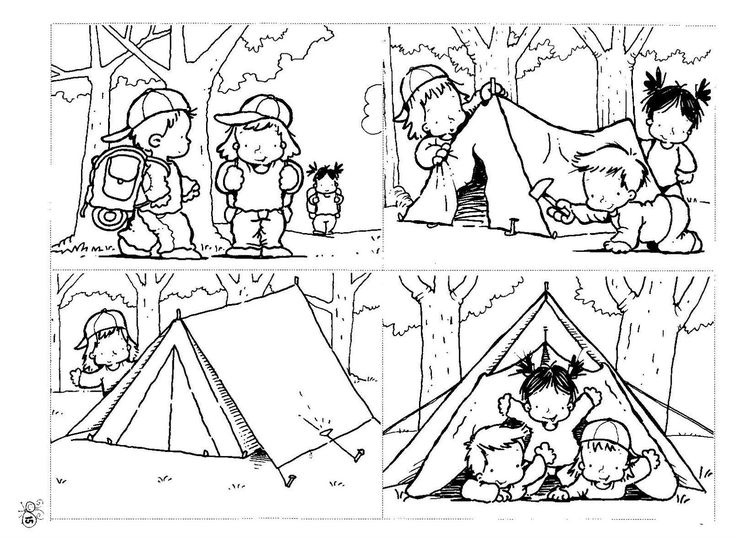
What Are Story Starters?
Story starters are just what the name suggests: they are the start of a story. An opening sentence can tell you so much about the story you are about to read. Think about these famous story starters:
“Call me Ishmael.” (Moby Dick)
“It was the best of times, it was the worst of times…” (A Tale of Two Cities)
“It is a truth universally acknowledged, that a single man in possession of a large fortune, must be in want of a wife.” (Pride and Prejudice)
These opening lines do more than hook your attention, they tell you about the type of story you are about to read.
Why Are Story Starters Helpful?
Story starters are a type of writing prompt that gets kids writing. They become the opening line of your child’s story. They eliminate the most intimidating part of writing (the blank page) and give your child a jumping-off point.
Story starters can inspire, but they can also stretch. You may have a facts-oriented child who would never dream of writing a fantasy story. Once he starts writing, however, he really enjoys imagining and creating.
Give your child a choice of two or three-story starters at a time. He can choose whichever starting sentence as the opening for his story.
25 Story Starters for Kids
- I was walking along a deserted beach when I saw something shiny wash up on the shore.
- I have always taken care of my pet, but that day he/she took care of me. It all started when…
- My brother says rainbows don’t go anywhere, but I set out to prove him wrong.
- It was the hottest day of the summer. I heard the sound of an ice cream truck, but its tune was strange and unfamiliar.
- Bang! Boom! Crash! What was the professor doing in his lab?
- I opened the box of eggs to make myself an omelet, but one egg didn’t look at all like the others.
- Some people are scared of spiders, bats, or the dark. Me? I’m scared of gummi bears.
- The people in the city were on their way to work when the ground shook and the air was pierced with a loud “Cock-a-doodle-doo!”
- I was walking home from school when I heard a soft neighing coming from the woods. I decided to investigate.
- As a pirate, I fear no man! But I shook in my boots the day the tentacle emerged from the sea.
- I opened my eyes after a night of deep sleep. Something was different. My room was upside down!
- I like to watch movies at the theater, but I want the images to stay in the screen! I’ll never forget the day when movies changed for me.
- Some cars are powered by gas, others by batteries. My car is powered by salsa.
- As a world class adventurer, I plunged into the forests of Okabunga in search of its famous treasure.
- One day my oatmeal was so sticky, it glued my mouth closed!
- My cat curled up in my lap. “I wish you would buy me salmon,” he purred.
- When my cousin and I were cleaning my grandpa’s attic, we discovered a dusty, thick book in the corner. When we wiped the dust away, we noticed its pages were trimmed with gold.
- It was the night of my first performance, and I was so nervous! I opened my bag and cried out, “What are you doing here?”
- If you are afraid of heights, you don’t want this job. I have to be totally fearless.
- I went to sink to brush my teeth. When I looked in the mirror, I screamed, “What did you do to my hair?”
- You expect your breakfast cereal to give you energy. You never expect it will make you fly. That’s what happened to me…
- I was in charge of taking care of the class pet for the summer: Buddy the Chameleon.
Was it just me, or was Buddy getting bigger every day?
- Dinosaurs are extinct. That’s what they tell me. But I know what I saw that day.
- My brother laughter so hard milk came out of his nose. “What’s so funny?” I asked. But he kept laughing and pointing in my direction.
- Today is the day of the bake-off, and my secret recipe is sure to surprise the judges.
Story Starters Kids Will Love
Discover the magic of story starters. Your child may transition from a reluctant writer to a budding novelist!
You Might Also Like:
- Fun Writing Activities for Middle Schoolers
- Teaching Writing: Ways to Say Said
Share with your friends!
6
shares
-
Share
-
Tweet
Tags creative writingelementarymiddle schoolteachingteaching tipsupper elementarywritingwriting prompts
Free Finish the Story Writing Prompts
| Leave a Comment | Filed Under: Holidays, Writing & Grammar
Do you need fun writing activities to keep your students engaged and writing during the holiday seasons? Or maybe you just want a new engaging way to help your students practice their writing skills.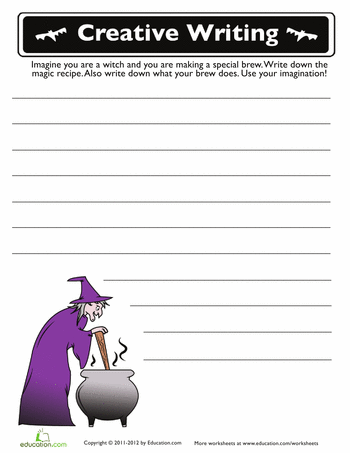
What are “Finish the Story” Story Starters?
A “Finish the story” writing prompt, also known as a story starter, is a sentence or paragraph that is used to begin a story. It typically contains one or more characters and description of the setting. It may also include dialogue and action. The idea behind a story starter is to provide a foundation for the story, giving the reader an idea of what will happen next. A good story starter should be interesting and create a sense of anticipation in the reader. It should also be easy to continue, so that the story can flow smoothly from beginning to end.
“Finish the Story” writing prompts help students write because they are able to focus on their writing and not worry about coming up with an idea for their story.
Why Use “Finish the Story” Writing Prompts?
These types of writing prompts are a great way to practice writing.
- They motivate and support students as they write because they are able to focus on their writing and not worry about coming up with an idea for their story.
- These types of prompts allow students to start writing right away with no wasted time staring at a blank piece of paper.
- Students are able to try out different genres and plot ideas that they might not think of on their own.
- They can help students with sentence structure, grammar, and vocabulary as the beginning of the story can be used as a mentor text of sorts.
- They help students find and use voice in their own writing.
Ideas for Using the Prompts in the Classroom
There are many ways that you can use these writing prompts in the classroom. Here are a few ideas:
* Use them as a writing assessment.
* Use them as a writing activity. Give students a prompt and have them write a story. They could even share their stories with the class or a small group. This is a great way to get students engaged and writing during the holiday seasons.
* Use them as an early finisher activity for students who finish other assignments before others.
* Use them as a writing center. Set up a station with story starters and supplies (paper, pencils, etc.). Then, let students choose a prompt and write a story. They could even work with partners or small groups.
About the FREE “Finish the Story” Writing Prompts
This FREE set of “Finish the Story” writing prompts has 22 total story starters that cover the 11 holidays and seasons listed below (two prompts for each).
- Back to School
- Halloween
- Fall
- Thanksgiving
- Christmas
- Winter
- Valentine’s Day
- St.
Patrick’s Day
- Spring
- Easter
- Summer
The writing prompts are included in both printable and digital formats.
The printable version has each story starter and writing response all on one page, so it is easy to copy and distribute to each student.
The digital version comes in two versions.
- two slides per story starter: full-page story and full-page text slide for writing response
- one slide per story starter: half-page story and half-page text box (with an extra full-page text slide if needed)
Get the FREE “Finish the Story” Writing Prompts
To get these free “Finish the Story” writing prompts, simply put your email in the box below and they will be sent straight to your inbox. You will receive via email a PDF containing the printable version. Digital access links are included on the PDF.
Want More “Finish the Story” Writing Prompts?
Shop This Post
“Finish the Story” Writing Prompts with Google Slides Versions
Buy Now
Want More Holiday and Seasonal Activities and Resources?
Shop This Post
Leave a Comment | Filed Under: Holidays, Writing & Grammar
Want a fun way to review parts of speech?
Enter your email to grab FREE “Find Someone Who” printables to review parts of speech in an engaging way that will get your students moving and talking.
First Name
Email Address
By entering your information, you agree to receive email communication from me. Per my privacy policy, you can unsubscribe at any time.
You May Also Like These Posts
Reader Interactions
Welcome friends! I’m Jennifer Findley: a teacher, mother, and avid reader. I believe that with the right resources, mindset, and strategies, all students can achieve at high levels and learn to love learning. My goal is to provide resources and strategies to inspire you and help make this belief a reality for your students. Learn more about me.
Imaginative Prompts and Story Starters Teaching Resources
32 of 76 teaching
resources for those ‘aha’ moments
-
teaching resource
Write About It! Halloween Costumes
Differentiate writing instruction in primary grades with a group of leveled Halloween writing prompts about Halloween costumes.
6 pages Grades:
K — 1 -
teaching resource
Disguise a Turkey — Thanksgiving Activity
Save Tom the Turkey this Thanksgiving with a Disguise a Turkey project template.
1 page Grades:
1 — 6 -
teaching resource
Write a Spooky Story — Scaffolded Writing Project
Inspire your struggling writers to write spooky stories that contain all of the story elements with a set of scaffolded writing activities and final draft paper.
1 page Grades:
1 — 2 -
teaching resource
Ocean Writing Center
Build stronger vocabulary and writing skills with an ocean-themed writing center.
1 page Grades:
K — 2 -
teaching resource
My Dream Story — Writing Prompt Template
Dream up some great stories using this creative story-writing prompt.
1 page Grades:
1 — 5 -
teaching resource
Spring Writing Prompts Worksheet
Explore creative writing in your classroom with these 3 fun story writing prompts for Spring.
1 page Grades:
2 — 4 -
teaching resource
MLK Day Task Cards
Challenge students to think about the work of Martin Luther King, Jr. with this set of 13 writing task cards.
4 pages Grades:
3 — 6 -
teaching resource
New Year’s Flip Book Template
Celebrate the coming of a new year by creating this flipbook with your students.
8 pages Grades:
2 — 6 -
teaching resource
Roll to Create a Haunted House Halloween Activity
A fun, hands-on Halloween activity using a die and a chart to create a haunted house to include in a narrative text.
1 page Grades:
2 — 6 -
teaching resource
Roll to Create a Halloween Story
A fun, hands-on Halloween activity using a die and a chart to create a narrative text.
1 page Grades:
2 — 6 -
teaching resource
Story Spine Porcupine – Narrative Writing Template
A template designed to help students plan their narrative writing.
1 page Grades:
1 — 3 -
teaching resource
Narrative Setting Craft Templates
A set of circular diorama templates that combine to create three scenes.
6 pages Grades:
3 — 6 -
teaching resource
My Ideal World – Writing Template
A template for students to use when writing about their ideal world.
1 page Grades:
2 — 5 -
teaching resource
Writing Prompt Jar – Cut and Assemble Kit
A set of labels and prompts to create a writing prompt jar.
4 pages Grades:
1 — 5 -
teaching resource
‘If I Was an Astronaut …’ – Writing Template
A writing prompt template for students to write what they would do if they were an astronaut.
1 page Grades:
1 — 3 -
teaching resource
My Nobel Peace Prize – Upper Grades
Encourage students to think about how they could make the world a better place with our Nobel Peace Prize writing template.
1 page Grades:
3 — 6 -
teaching resource
Story Ideas — Character, Setting, and Complication Cards
A fun way to help your reluctant writers choose something to write about.
9 pages Grades:
2 — 6 -
teaching resource
What Happened Next? – Little Red Riding Hood Writing Template
A template for students to finish the story of Little Red Riding Hood in their own, unique way.
2 pages Grades:
1 — 3 -
teaching resource
What Happened Next? – Alice in Wonderland Writing Template
A template for students to finish the story of Alice in Wonderland in their own, unique way.
2 pages Grades:
1 — 3 -
teaching resource
What Happened Next? – Goldilocks and the Three Bears Writing Template
A template for students to finish the story of Goldilocks and the Three Bears in their own, unique way.
2 pages Grades:
1 — 3 -
teaching resource
What Happened Next? – Cinderella Writing Template
A template for students to finish the story of CInderella in their own, unique way.
2 pages Grades:
1 — 3 -
teaching resource
What Happened Next? – The Three Little Pigs Writing Template
A template for students to finish the story of The Three Little Pigs in their own, unique way.
2 pages Grades:
1 — 3 -
teaching resource
What Happened Next? – The Gingerbread Man Writing Template
A template for students to finish the story of The Gingerbread Man in their own, unique way.
2 pages Grades:
1 — 3 -
teaching resource
What Happened Next? – Jack and the Beanstalk Writing Template
A template for students to finish the story of Jack and the Beanstalk in their own, unique way.
2 pages Grades:
1 — 3 -
teaching resource
Roll to Create a Thanksgiving Feast
A fun, hands-on Thanksgiving activity using a die and a chart to create a narrative text.
1 page Grades:
2 — 6 -
teaching resource
Mysterious Story Setting Background Posters
A set of 3 mysterious story setting posters for students to use in a variety of ways.
3 pages Grades:
2 — 5 -
teaching resource
Curious Creatures Character Spinner
A curious creature character spinner to use in a variety of ways.
1 page Grades:
1 — 3 -
teaching resource
Assorted Writing Prompts Calendar – Upper Grades
Monthly writing calendar with 240 writing prompts for the year.
12 pages Grades:
4 — 6 -
teaching resource
Journal Writing Prompt Cards
46 writer’s notebook journal writing prompt cards.
12 pages Grades:
3 — 6 -
teaching resource
Imagine This! Story Template
A template to use as a fun writing activity.
3 pages Grades:
2 — 5 -
teaching resource
Animal Poetry Prompts Task Cards
A set of 12 poetry prompts for younger students.
3 pages Grades:
K — 2 -
teaching resource
Roll to Create a Groundhog Story
A fun, hands-on Groundhog Day activity using a die and a chart to create a narrative text.
1 page Grades:
2 — 6
Creative Writing Prompts, Ideas, Lists, and Resources for Elementary Students
Are you looking for a comprehensive list of creative writing prompts and journal ideas for your students?
On this page, you will find a large list of writing topics that will spark creative ideas in your students during journal and creative writing activities.
I have created these writing lists during my 22 years of teaching experience. I have grouped these creative writing prompts together into categories of similar topics to make it easier for you to find writing ideas in the area that you are interested in.
First, you will find creative writing prompts for each month of the year. On these monthly web pages, you will find topics that pertain to each month’s themes, holidays, and events. You will also find writing ideas for specific dates and events for each month.
Second, you will find general writing prompts that you can use all year long with your students. I have divided these general creative writing prompts into the following categories: school, favorites things, friendship, memories, personal and feelings, famous people, animals, create or invent, what if, and story starters.
I have created this list of writing ideas for elementary school teachers and students, but many of these creative writing prompts are also appropriate for other grade levels as well.
As you read through these creative writing prompts, you will find links to related lesson plans found on Unique Teaching Resources. When appropriate, I have also included useful links to other informational websites. that will help save you time in planning your lesson activities.
Click on one of the calendars below to go
to a specific page of monthly writing prompts:
On these pages, you will find creative writing prompts that
pertain to each month’s themes, holidays, and events.
Creative Writing Prompts
To Use All Year Long:
CLICK on one of the writing prompt categories
below (or scroll through the rest of this page):
I hope that you will be able to find some creative writing prompts in the following lists that will be fun and engaging for your students to write about throughout the school year.
- School
- Favorite Things
- Friendship
- Memories
- Personal and Feelings
- Famous People
- Animals
- Create or Invent
- What If (things that could possibly happen)
- What If (using your imagination)
- Story Starters (creative ideas for beginning stories)
- What are your goals for this school year?
- What are 5 things that you can do to become a better student?
- Compare what it was like being in first grade to the grade that you are in now.
- The most important thing that I learned last year in school was …
- What is your most significant memory from each grade level in school?
- Write about your favorite subject in school. What is your least favorite subject?
- If you could eliminate one subject or one activity to your school day, what would it be?
- Invent a new subject for school.
- The best things about a computer is …
- If I were a character in a book, I’d be _____ because …
- Ten crazy reasons why I couldn’t do my homework.
- A kind teacher that I will always remember.
- If you were a teacher, what subject would you most like to teach? What grade level would you most like to work with?
- If you were the principal of this school, what would you do?
- If you were a principal and you had to hire some new teachers for your school, what qualities would you look for in a teacher? Explain what would make a good teacher.
- If you had to design a new uniform for your school, what would it look like?
- Journal Writing Prompts and Ideas for Elementary School Lunch Menu
- If you could choose any animal for a class pet, what animal would you choose and why?
- I would add this food item to our school cafeteria.
- If you were asked to design a menu for the cafeteria for one week, what would it consist of?
- Everyone likes snacks! Write instructions that explain how to make a healthy snack that would be good to pack in your lunch box.
- Write an essay on the benefits of a healthy diet.
End of School Themed Creative Writing Prompts
- What is your favorite game? Explain how you play your favorite game.
- Describe your favorite toy and when you received this toy.
- What is your favorite hobby? How often do you get to do this activity? Is this something that you are good at, or are you just learning how to do this activity?
- Describe your favorite sport and explain the rules for playing this game.
- What is your favorite athletic team? Describe why this is your favorite team.
- Who is your favorite athlete? Describe the sport that this athlete is famous for and why you admire this athlete.
- Which is your favorite season and why?
- What is your favorite type of weather? Why? Write about the activities that you do during this type of weather.
- What is your favorite holiday and why? What traditions do you and your family share during this holiday?
- What are your favorite foods? What are your least favorite foods?
- Describe your favorite restaurant.
- Describe how to prepare your favorite meal.
- What is your favorite television show and why?
- What is your favorite movie and why?
- What is your favorite song and why?
- Write about your favorite pop star. Explain his/her music and why it appeals to people.
End of Favorite Things Creative Writing Prompts
- What qualities do you look for in a friend?
- How do you try to be a good friend to others?
- Can you remember your first friend? Who was it? What were some of the things that you did together?
- Describe your best friend.
- How would you feel if your best friend was moving to a different country?
- Describe a time when you had a disagreement with your best friend.
- What is most important to you in a friend: loyalty, generosity, honesty? Why?
- Your friend wants to come to your house. Write directions telling how to get to your house from school.
- What would you do if you saw a friend cheating? Would you report it, confront the friend, or say nothing? Why?
- If another child was making fun of your best friend or bullying them, what would you do? Write about how you would help your friend in a positive way.
- Your friend was absent from school today. Write a letter to tell your friend what happened in school today and what he/she missed.
- Interview a classmate.
End of Friendship Creative Writing Prompts
- Think of a real experience you have had that would be hard to forget. Think about what makes it so hard to forget. Tell what happened.
- Write about a time you experienced or learned something for the first time.
- Write about a time when you were surprised.
- Write about a time when you were embarrassed.
- What is one of the funniest things that has ever happened to you?
- Write about one person who has made a difference in your life.
- Think of a time when you achieved a personal goal. How did you feel when you accomplished this goal?
- Recall a time when you felt really disappointed about something.
- Think about a time when you felt scared about something.
- What is the most special gift that you have ever received?
- What is the nicest thing that you have done for someone?
- What is the toughest decision that you ever had to make? What made this decision so difficult?
- Have you ever done or said something that you regret? How would you change these words or actions if you were in this situation today?
- Almost everyone has had at least one teacher who is hard to forget. Write about a teacher that you will always remember.
- Write about a disastrous trip or vacation.
- Write about your favorite trip or vacation.
- Write about a trip to the zoo.
- Describe the most beautiful place or scene you ever saw.
- Describe a visit to the dentist.
- Describe a time that you were hurt or a time you were in the hospital.
- Write about a time that you went to an amusement park or fair.
- Weather can affect your life. Think about a time in your life when you have been affected by some kind of weather.
End of Memories Creative Writing Prompts
- How would you make this world a better place to live in?
- What do you want to be remembered for?
- What is one thing that you wish you could do better?
- What do you want to do when you finish school? Is there anything you can do right now to prepare for your future plans?
- What do you think is the «perfect» age to be? If you could choose one age and stay that age forever, what would you choose?
- I wish I could be like…. This person is special because….
- Have you ever had to apologize for something you did? How did you feel before and after the apology?
- Do you own anything that is so special that you would never sell it for any price? Explain why you would never sell this object.
- What advice would you give to someone who stole something but now feels guilty?
- Which country would you most like to visit the most? Why?
- If I could live anywhere in the world it would be …
- Traveling to Any Country in the World
- How would you feel if you learned that you were moving to a new city next month?
- Your family has just moved to a country where you don’t speak the language. What would you do? How would you feel?
- What would you do if you were invited to two parties on the same day?
- Describe a typical day in your life. Use sensory detail (sight, sound, touch, smell, taste) to make your daily experiences come to life.
- Write about what you do on the weekends. How do your weekends differ from your weekdays?
- How do you like to spend your free time?
- Describe the clothes you are wearing. Why did you choose these clothes to wear today?
- Do you have any nicknames? Describe where the nicknames came from and what they mean to you.
If you don’t have a nickname, choose one for yourself and explain why you chose this nickname.
- Should children have strict bedtimes? What do you think is a fair bedtime for children your age and why?
- Write about your brothers and sisters. If you don’t have any, do you wish you did?
- What do you think is the most significant invention ever made?
- Name three inventions you could not live without and explain why they are so important to you.
End of Personal and Feelings Creative Writing Prompts
- Who is a person that is alive today that you would most like to meet and talk to? Why? What would you like to ask this person?
- Who is a person from history that you would most like to meet and talk to? Why? What would you like to ask this famous person?
- If you could change places with anyone, who would it be and why?
- What TV or movie star would you like to invite to your birthday party?
- If you could take 3 famous people with you on a trip around the world, who would you take and why?
- Pretend that you won a contest to go on a concert tour with your favorite music singer.
Write a story about your adventure.
- You have won a contest to go out to dinner with your favorite movie star. Which movie star will you select and which restaurant will you choose?
- Imagine that you are a talk-show host and getting ready to interview a famous person. Prepare for the interview by writing some questions that will help you learn useful and interesting information about your guest.
End of Famous People Creative Writing Prompts
- What kind of pet would you most like to have? Why? What responsibilities would you have in order to take care of this pet?
- What kind of pet do you have? Describe this pet. If you don’t have any, what kind of pet would you like to have?
- Write a description on an extinct species and what would have happened if it were still alive.
- If you were an animal, what kind would you be and why?
- Invent a new animal. Describe what it looks like, what it sounds like, how it moves, and what it eats.
- If you were stranded on a deserted island and could take one animal to accompany you, what animal would you take with you?
- What would happen if you could talk to animals? What would you ask them?
- What would it be like to have a pet dinosaur?
- What would it be like if you were a bird and you could fly?
- What if cows gave root beer instead of milk?
- What would happen if it really did rain cats and dogs?
End of Animals Creative Writing Prompts
- Think about an invention that you’d like to have or make. Write about what this new device would do and why you’d like to use it.
- If you could create a new T.V. show, what would it be about?
- You have been chosen to create a movie based on your favorite book. Which book would you choose? Which actors would you choose to play the lead roles?
- You’ve designed a new video game for kids. What is it like?
- If you could create your own website on any topic at all, what would it be? Write about why you chose this topic, what the website would contain, and who else you think might be interested in going to your site.
- If you could open a business of your own, what kind of business would it be?
- If you could build the world’s greatest playground, what would be in it?
- Create an imaginary country and describe its rivers, mountains, exports, customs, holidays, money, climate, history, and politics.
- You have invented a time machine. Which time in the past will you visit first?
- Create a new planet. Describe the important features of the landscape, what the climate is like, and if there are any life forms on this planet.
- Create a new holiday. What would this holiday celebrate? How would you celebrate it? Would there be any special food or symbols for your holiday?
- Invent a new animal and describe what it looks like, what it sounds like, how it moves, and what it eats.
- Sometimes we eat something that we think tastes disgusting. Think of a food that you do not like and create a new recipe for it that you think would improve the flavor of it.
- Create a new car for the future.
What special features would this car have that cars do not have today?
End of Create or Invent Creative Writing Prompts
- What would you do if you won the lottery?
- What would you do if you had a million dollars to donate to a person or a charity?
- What would happen if you found gold in your backyard?
- Describe a «fantasy» day in your life. If you could design a whole day to do anything and everything you wanted, what would you choose to do?
- If you could take lessons to learn how to do something new, what would you choose to learn?
- If you could learn to speak a new language fluently, which language would you choose and why?
- When you get to school, there’s a sign on the door stating, «School is Closed.» What would you want during this day?
- If you could visit anywhere in the world, where would you go?
- What would you do if you woke up in another country and no one could understand you?
- If you were stranded on a deserted island and could send out one message in a bottle, what would you write in your message?
- If you were going to be stranded on a deserted island and could take three items with you, what three items would you take and why?
- What would you do if you were the President?
- What would happen if there were no television? Why would this be good or bad? Why?
- If you could be a new character on your favorite T.
V. show, who would you be?
- Describe your favorite T.V. show and your new role in it.
- If you could participate in an Olympic event, which event would you choose and why?
- If you could break the Guiness Book of Records, what would it would be for?
- Imagine that there were no telephones, cell phones, or computers. Write about the different ways that you would communicate with people in different places.
End of What If Creative Writing Prompts
- If you could choose one superpower to have for a day, which superpower would you select? Describe your day as a superhero.
- What would happen if you could fly whenever you wanted? When would you use this ability?
- What would you do if you were the tallest person in the world?
- What would you do if you were one inch tall?
- What would happen if one morning you woke up and realized that you were invisible? Describe what happens.
- What would you do if you found a magic carpet?
- What would you do if you found a magic wand?
- A flying saucer has been sighted over your town.
- Aliens have abducted you as you were walking to school. Write a letter to your best friend on Earth telling him or her about this experience.
- If you could make it rain anything except water, what would it rain? How would this rain affect people and the environment?
- If you had a robot, how would the robot help you with your daily life?
- If you could talk with Mother Nature, what questions would you ask her?
- Describe an imaginary place that you’d like to visit.
- If I could visit any planet in the solar system, I would go to…
- Describe what it would be like if you lived on the moon.
- What would happen if everyone lived in space? What type of houses would they live in? What type of clothing would they wear? What type of food would they eat? How would they travel?
- What if all the streets were rivers? What would be different?
- One morning you wake up and look out the window and discover that a huge castle has appeared next door overnight.
End of Using Your Imagination Creative Writing Prompts
- Why do zebras have stripes?
- This was the strangest zoo in the world …
- Newsflash: A _____ has escaped from the zoo!
- I woke up and found a dinosaur in my back yard.
- As I was walking through the forest, I stumbled upon a gigantic egg.
- On my Africa safari, I suddenly came upon some poachers with a gun and they were about to shoot a …
- You don’t normally see a ____ (animal) in/at a _____ (place)!
- Something brushed up against my foot and my surprise turned to horror as I looked down and saw …
- Dear Teacher, I couldn’t do my homework last night because … (create an idea that a teacher has likely never heard of before)
- The championship game was tied and there was one minute left in the game. I was suddenly passed the ball and …
- I had made it to the semifinals of American Idol and tonight …
- My dream came true and I was finally going to .
..
- Today I am attempting to break the world record for …
- I woke up, and could not remember my name or where I was. Then …
- It was an ordinary day, except for …
- It was obviously going to be an unusual day when my mom came into my bedroom and said …
- I opened my closet door, walked in, and suddenly I was in …
- My bed moved and I looked under my bed and saw …
- Late one night there was a knock on my front door …
- The elevator stopped suddenly, and I was stuck inside the elevator with …
- Everyone avoided the big old mansion. It was believed to have …
- It was not the birthday gift I was expecting.
- As I looked in the mirror, I saw my hair turn …
- It happened so quickly I had no time to think, only react.
- I was not expecting what was waiting for me just as I rounded the corner.
- This was the worst place imaginable to run out of gas in my car!
- My life as a pirate …
- My scuba diving adventure …
- My magical roller blades take me on exciting adventures.
- I was the lead detective on a very difficult case to solve.
- Moving to Antarctica …
- Inside the ancient Egyptian pyramid I discovered …
- After the king gave his orders, we all picked up our helmets, swords, and shields.
- While sailing with Ponce De Leon, I helped him find the Fountain of Youth.
- 5 …4 …3 …2 …1 …BLAST OFF!
End of Story Starters Creative Writing Prompts
Thank you for visiting this
Creative Writing Prompts page.
Home
›
Creative Writing Prompts
Lessons 76-77. V.P. Astafiev. The story «Vasyutkino lake». Literature lessons in grade 5
Lesson 76. V.P. Astafiev. «Vasyutkino Lake»: a young hero in an extreme situation
Lesson 77. VP Astafiev. «Vasyutkino Lake»: the formation of the character of the protagonist
Lessons 78-79. Lessons of current control
LESSON 76
VP ASTAF’EV.
A YOUNG HERO IN AN EXTREME SITUATION
The main content of the lesson
Brief story about the writer (childhood and beginning of literary activity). The behavior of the hero in the forest. Fearlessness,
patience, love for nature and its understanding, resourcefulness in extreme situations. Pictures of Siberian nature and their moral meaning.
Main activities of students.
Reading and discussion of the textbook article about Astafiev, the article “Village Ovsyanka” (from the section “Literary
places in Russia). Perception and expressive reading of the story, artistic retelling of its fragments, analysis of the content of the story on the teacher’s questions (on
groups). Oral answers to questions (using citation). Participation in a collective dialogue. Discussion of works of book graphics to
story. Oral illustration.
Independent work. Creating illustrations for the story and preparing for their presentation and defense.
LESSON CONTENT
I. A short story about the writer (childhood and the beginning of literary activity)
presentation, which includes a gallery of portraits and images of places associated with the name of Astafiev.
II. Reading a textbook article about Astafiev (see article below), articles
«Village Ovsyanka» (see article below) from the section «Literary places in Russia» at the end of the textbook,
part 2 and summarizing conversation:
How do you understand the epigraph to the article about the writer?
Can stories about relatives, countrymen, fellow villagers be interesting to people who did not know them? Justify your opinion.
What difficulties did Astafiev endure in his childhood and youth? What trials did he overcome in life?
How to understand the words «…all this was put off, somewhere it accumulated slowly, until it was asked to come out»?
Answer to question 1 from the Test Yourself section of the textbook.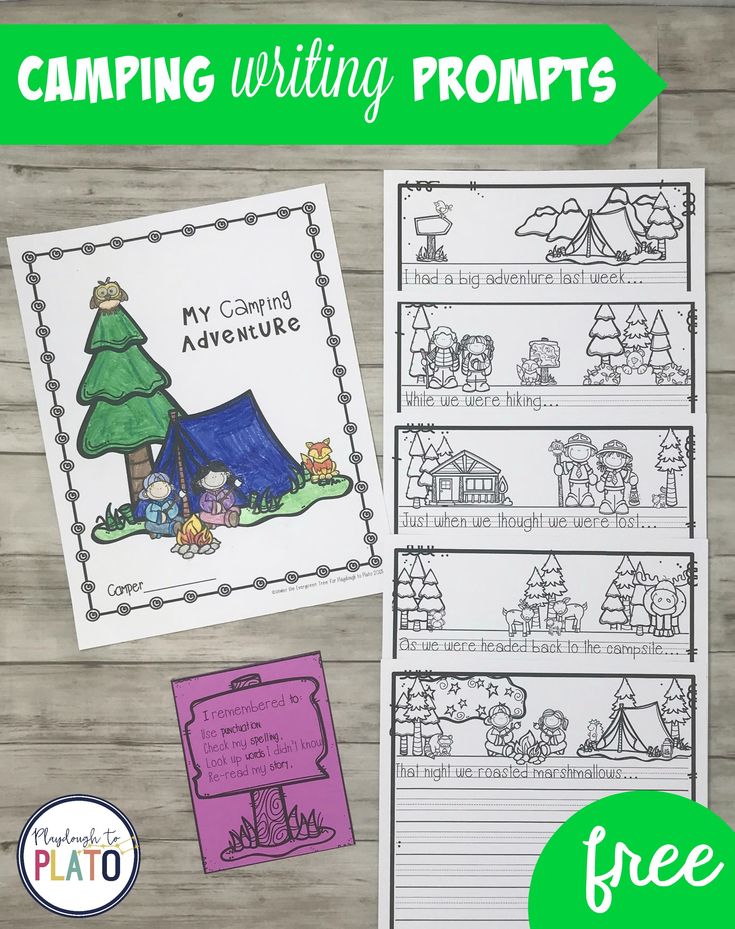
The behavior of the hero in the forest. Fearlessness, patience, love for nature and its understanding, resourcefulness in extreme situations
III. Expressive reading, retelling and work with the text of the story «Vasyutkino Lake» (in groups).
The text for each group can be read by several fifth graders.
G roup 1.
Read the passage of the story expressively from the beginning to the words «…sometimes the gun will fire.»
Tell us what problem puzzled the fishermen from Vasyutka’s father’s brigade.
Group 2.
Expressively read the fragment of the story from the words “Vasyutka woke up late” to the words “It will be hard, perhaps, but nothing, I will inform you.”
What taiga laws did Vasyutka’s mother warn about? Why didn’t the boy shoot at the nutcracker?
Group 3.
Expressively read the fragment of the story from the words: “Suddenly something clapped in front of Vasyutka” to the words “.
How did Vasyutka cope with the capercaillie?
What hunting skills did he display?
Pictures of Siberian nature and their moral meaning
Group 4.
Expressively read the fragment of the story from the words “He looked around” to the words ““Come what will be,” he thought vacantly.”
What symbolic meaning did the author put into the description of the “dead bird” and “the fly caught in the net”?
Group 5.
Tell in detail how Vasyutka spent his first night in the taiga, from the words “The night flew silently into the forest like an owl” to the words “He breaks off the shoots from the rhizome
and carries them to the fire.
What qualities of character did Vasyutka show during his first night in the taiga?
What first tests did the taiga offer him?
What did he manage to do? How did he escape in the taiga from hunger and cold?
Group 6.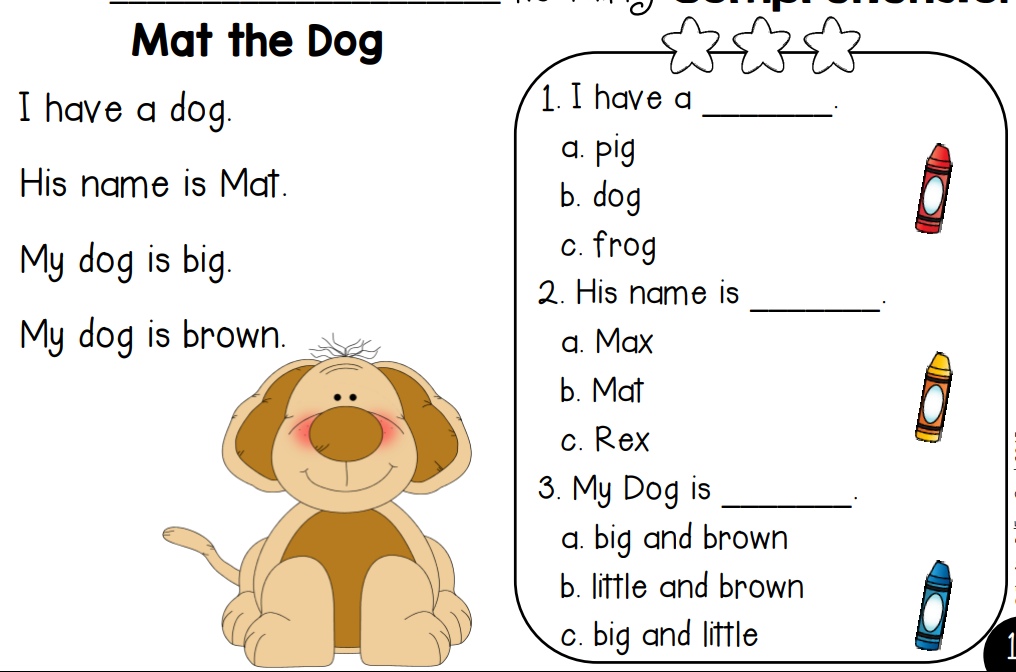
Tell in detail how Vasyutka spent his first day in an unfamiliar place when he got lost, using the words “August night is short in the Arctic”
to the words «By all indications, it won’t be long to wait.»
What pictures of Siberian nature confirm the author’s idea that the taiga is a living being?
Summary conversation:
Answers to questions 2-5 from the section of the textbook «Thinking about what we read»
Completing task 1 from the section «Enriching our speech».
Homework
Complete task 2 from the Test Yourself section of the textbook.
Read the story «Vasyutkino Lake» from the words «The sun went down» to the end and prepare to retell this part.
Individual tasks.
Draw your own illustrations for the story Vasyutkino Lake and prepare to defend them.
Complete the task from the section of the textbook «Literature and Fine Arts».
LESSON 77
V.
FORMATION OF THE CHARACTER OF THE MAIN HERO
The main activities of students.
«Discovery» of a new lake by Vasyutka. The main character traits of Vasyutka. The formation of the character of the hero in difficult trials. Autobiographical story.
Hero and author.
The main content of the lesson
Oral story about the writer. Reading (including by roles) and retelling of fragments of the story, lexical and historical and cultural comments on the text (by groups).
Oral answers to questions (using quotes). Participation in a collective dialogue. Drawing up a plan for the characterization of the hero of the story. Behavior Story
and the actions of the hero (using quotes). Moral assessment of the behavior and actions of the hero of the story. Analysis of various forms of expression of the author’s position.
Reading and discussion of an excerpt from Astafyev’s memoirs «The fate of the story» Vasyutkino Lake «».
Practical work. Compilation of a quotation table «The character traits of the hero and the author’s attitude towards him.»
Independent work. Completion of a written description of the hero (using the materials of the table).
Preparation for the test is a written answer to a problematic question. Drawing up a plan (including citation) of an independent written
statements.
I. «Discovery» of a new lake by Vasyutka. The formation of the character of the hero in difficult trials
Reading aloud and retelling the second half of the story Vasyutkino Lake, lexical and historical and cultural comments (in groups):
sunset … «to the words» … and soon forgot a restless sleep.
(Fifth graders can come up with titles for the episodes.)
Why did Vasyutka burst into tears when he found the lake? What especially surprised him in the lake?
What laws of nature and taiga life did he remember during his stay in the taiga?
(Marshes are most often found near the shores of lakes; as long as you have enough patience, do not touch the bread; looked at the lake, at the bloody sky and said anxiously:
“There will be wind tomorrow.
Why did Vasyutka “begin to be bothered by remorse”?
Group 2.
Retelling of the episode “Morning on the shore of Vasyutka Lake” from the words “Vasyutka woke up late …” to the words “… and again forgot himself in a heavy sleep.”
How did Vasyutka explain the presence of many white fish in the lake?
(The lake is flowing, which means that a river flows out of it, leading to the Yenisei; I noticed a yellow groove of a deciduous forest entering the depths of the taiga.
So, there is a river; high steep banks appeared. “Here it is, the river!”)
How did this knowledge help the boy to survive?
What metaphors and figurative comparisons does the author use to create pictures of the harsh and inexorable taiga?
Prove that it is still beautiful for the author.
Group 3.
Retelling of the episode “Vasyutka comes ashore on the Yenisei” from the words “At dawn, Vasyutka, chattering her teeth from the cold.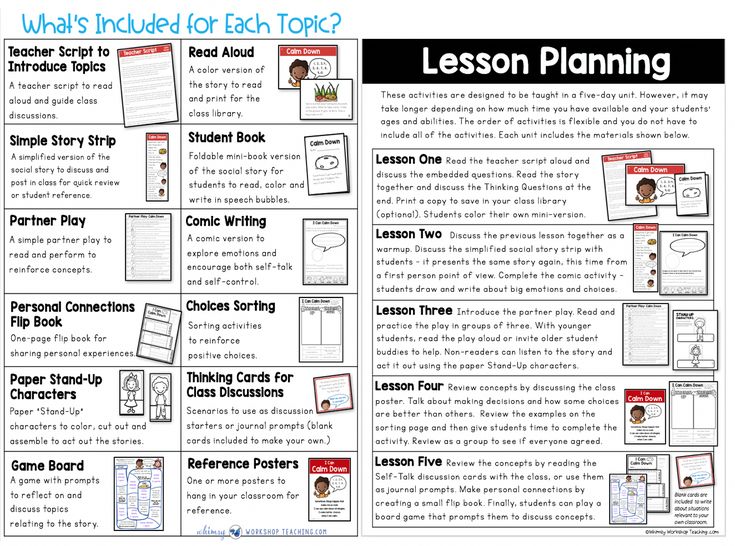
How did Vasyutka overcome the difficulties of his last nights in the taiga?
(Find firewood, save matches, cook food, arrange lodging for the night, tie up broken shoes, etc.)
What “taiga tricks” and signs of taiga life did he know?
(The whistle always responds to a nearby body of water; smoke has appeared in the upper reaches of the river … A steamer is coming; only the exhaust pipe of a fish-gathering plant could knock like that
boat-boat, etc.)
How does the author describe the state of Vasyutka when he sees the banks of the Yenisei and the ship «Sergo Ordzhonikidze»? Compare these states.
What words and expressions does the author find to express the joy and disappointment of the hero?
Group 4.
Read the episode “Vasyutka is saved” by roles from the words “I immediately came to my senses, grabbed my belongings …” to the words “… stretching out my hands towards my son.
What intonations are inherent in Vasyutka’s remarks? How do they express the state of the boy?
How does Uncle Kolyada’s Ukrainian dialect help to create a unique image of this character?
Describe the feelings of the reader who learned about the condition of the mother and grandfather of the missing Vasyutka.
Group 5.
Role-play the episodes “Vasyutka is home again” and “Fishermen on Vasyutkin Lake” with the words “… And now Vasyutka is home!” to the words «… opened a permanent fishery.»
How did mother, father and grandfather react to Vasyutka’s adventures? What words and expressions does the author use to describe the state of the characters when the boy returned?
What moral lessons could Vasyutka draw from his father’s reaction to his stories? Why was he «ashamed to sail in a boat»?
Read the last two paragraphs of the story. What feelings and thoughts about our Motherland do they evoke?
Summary conversation:
Answers to questions 1, 6, 8 from the section of the textbook “Thinking about what we read”.
Remember the details of Vasyutka’s adventures, which helped develop his masculine character.
What did he know about the taiga before his wanderings and what did the taiga teach him?
Completion of tasks 2-5 from the section of the textbook «Enriching our speech».
II. The main character traits of Vasyutka
Drawing up a plan for the characteristics of Vasyutka.
The age of the hero, his appearance.
Boy’s family.
Activities of parents and grandfather and Vasyutka’s attitude towards them.
Vasyutka’s character traits:
• Desire to help elders (collected pine nuts for fishermen, etc.).
• Hardening of a taiga inhabitant (the ability to shoot, use matches and take care of them, find food and water in the taiga, save bread and salt, etc.)
• The ability to be alone in the forest (lit a fire, dried clothes, arranged an overnight stay so as not to freeze, cooked food, knew the signs by which in the taiga
find north and south, determine the proximity of a river or swamp, was able to identify fish species, etc.
• Courage and resourcefulness (not afraid to spend the night alone in the forest, determined that the lake was flowing, etc.).
•Optimism, faith in victory over the taiga (did not lose heart during his wanderings, tried not to cry and maintain self-control, constantly thinking about practical
ways to get out of the taiga and skillfully applied them in his adventures, etc.).
•Love for the native land (deep feeling of the Motherland when meeting with the Yenisei, etc.).
Character traits of the boy, admired by readers.
Listening to oral reports of students on the points of the plan.
III. Reading an excerpt from Astafiev’s memoirs about his childhood «Robinsonade».
Why is the story “Vasyutkino Lake” called autobiographical?
IV. Autobiographical story. Hero and Author
Reading an excerpt from Astafiev’s memoirs «The fate of the story» Vasyutkino Lake «» (see excerpt below).
Can the history of the creation of the story be considered unusual?
How does the author feel about his character?
How did the author’s position appear in the story?
Schoolchildren can summarize their observations on the text in the table:
|
| ||
|---|---|---|
|
Character traits of the hero |
Quotations confirming the presence of this trait |
Author’s attitude to the hero |
IV. Show, discuss and protect students’ illustrations for the story.
Homework
Create a written description of Vasyutka using the materials from the table.
Prepare for a cool written response to one of the problematic questions (see next lesson).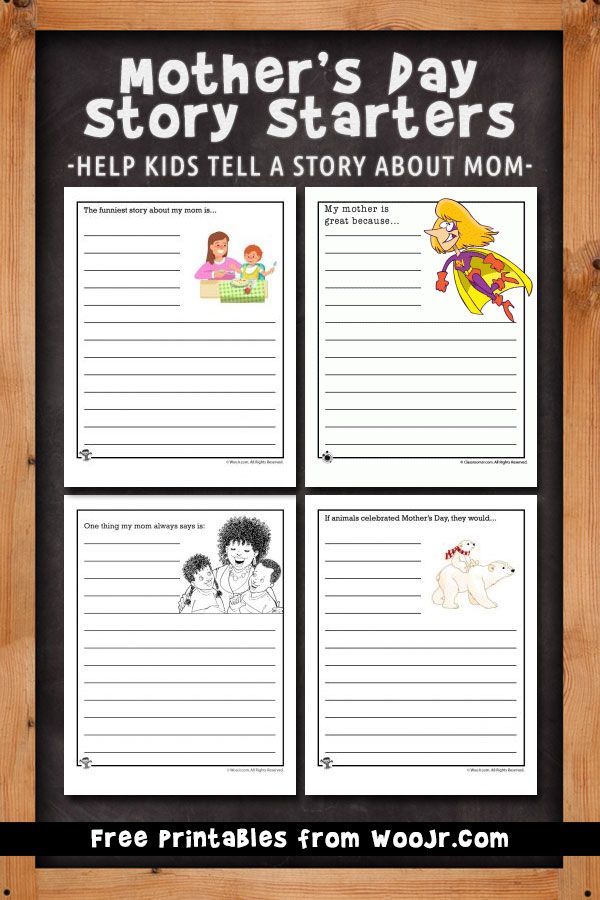
LESSONS 78-79
LESSONS OF CURRENT CONTROL
The main content of the lesson.
Preparing for a cool written answer to one of the problematic questions.
Main activities of students.
Drawing up a plan for an independent written statement. Selection of quotes on a given topic. Drawing up a plan (citation plan)
written statement. Compilation of an oral and written response to one of the problematic questions.
Self-employed. Search in the reference literature or the Internet for materials about the fates and deeds of children during the years
Great Patriotic War. Preparation of a report on the military biography of A. T. Tvardovsky with
showing his portraits. Searching for a poem about children in the war, preparing for its expressive reading, creating an illustration for the poem.
I. Preparation for a classy written answer to one of the problematic questions
V.
Drawing up a plan of a written statement and selection of quotations that reveal points of the plan :
What is a landscape in a literary work? Why do writers use descriptions of nature in their poetry and prose?
What season does the writer draw? What signs of this season does he show the reader?
How do landscapes convey feelings and moods of a person?
What figurative and expressive means does the author use to make his description colorful?
Is it possible to determine the author’s attitude to a specific season, to nature in general, by the landscape?
What is unusual and original in the Russian landscape in the work you have chosen?
What impression do the descriptions of nature make on the reader, on you personally (on the example of a particular work)?
The answer to each question is supported by examples from the text.
2. What actions of peers and traits of their character cause my admiration in the works of K.
V.P. Astafiev? (one piece each)
In what family was the hero brought up? Who were his parents, the inner circle, what did they do?
How did they influence the education of the hero, his upbringing, outlook on life?
What do we learn about the hero before he appears in the story?
What techniques does the author use to create the image of the hero (choosing a name, setting the hero’s appearance in the work, portrait, speech,
the world of things that characterizes the hero, the actions of the hero, the evaluation of the hero by other characters, the self-esteem of the hero)?
What is the author’s attitude towards the hero, how is it expressed (does the author directly assess the hero or does he show his assessments implicitly)?
II. Retelling the content of future answers.
In the second lesson, fifth graders will answer these questions in writing.
Homework
Find materials about the fate and deeds of children during the Great Patriotic War in reference books or the Internet.
Individual tasks.
Prepare a short report on the military biography of A. T. Tvardovsky, find him on the Internet
wartime portraits.
Pick up one poem about children in the war, prepare to read it expressively, draw an illustration for it (this task is given to several
fifth graders).
Next lessons: Lesson 80. A. T. Tvardovsky. «Tankman’s Tale» >>>
VICTOR PETROVICH
ASTAFYEV
1924-2001
…I thought and thought, and it turned out that I needed to talk about my countrymen, first of all
a head about my fellow villagers, about grandparents and other relatives… They were
interesting to me and loved by me for who they really are.
V. Astafiev
Victor Petrovich Astafiev was born near Krasnoyarsk into a peasant family. Lost his mother early. I lived with my grandparents for about three years. Then moved in with his father
and stepmother to Igarka, ran away from home, was homeless, went to school at the Yenisei station, worked in the suburbs of Krasnoyarsk, participated in the battles in the Great
Patriotic war, was wounded, then worked as a laborer.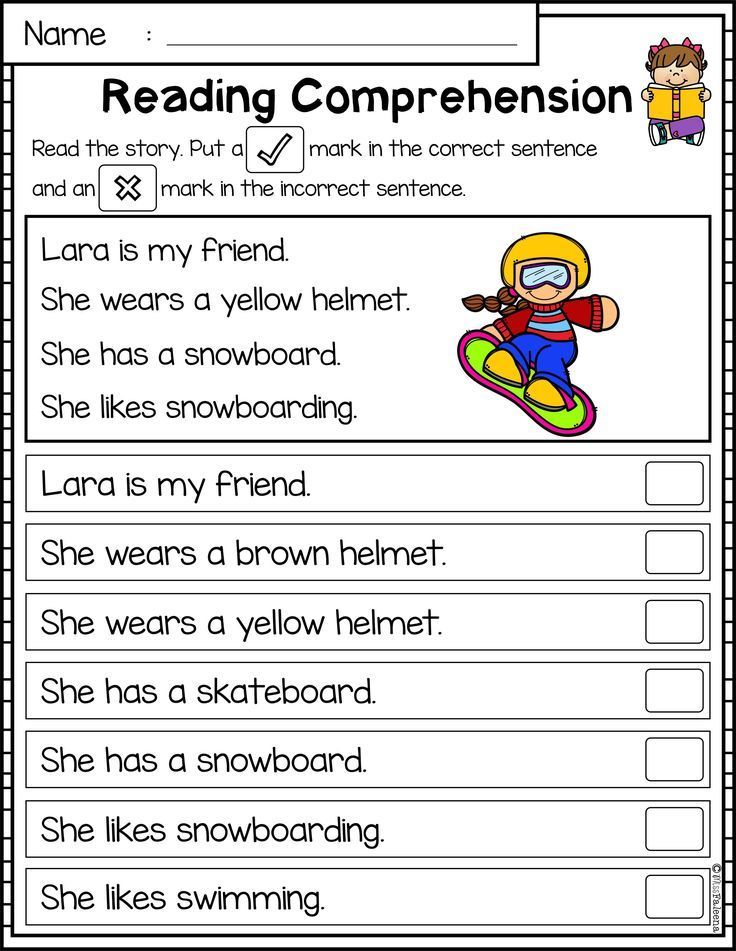
“… A lot of meetings, a lot of impressions, a lot of events, different, pleasant and unpleasant — all this was put off, somewhere it accumulated slowly until
didn’t ask to come out.»
In 1951, he wrote the first story «Civil Man». In his autobiography, V.P. Astafiev writes:
“…I know one thing for sure — they forced me to write books and life. I always and everywhere read a lot, and sometimes I read to the detriment of my studies … I began as a writer
not on the evening when he sat down to write his first story, but, apparently, when he composed long «lyrical» letters from the front, when in hospitals, on the way
and at rest stops he talked about his front-line comrades, about various cases from his life. At 19In 1953, the first collection of short stories was published in Perm
Astafiev «Until next spring».
Source: Literature. Grade 5 Textbook for educational institutions. At 2 pm / V.Ya.Korovina, V.P.Zhuravlev, V.I.Korovin. — M.
Education, 2015. (return to lesson)
CHECK YOURSELF
1. What, according to V.P. Astafiev himself, made him write?
2. Prepare an oral report about the writer, using the content of the textbook article and the works of VP Astafiev that you have read earlier.
Source: Literature. Grade 5 Textbook for educational institutions. At 2 pm / V.Ya.Korovina, V.P.Zhuravlev, V.I.Korovin. — M.:
Enlightenment, 2015. (return to lesson)
THE FATE OF THE STORY «LAKE VASIUTKA»
The fate of the story «Vasyutkino Lake» is curious. In the city of Igarka, Ignaty Dmitrievich Rozhdestvensky once taught Russian language and literature,
famous later Siberian poet. He taught, as I now understand, his subjects well, made us «wiggle our brains» and not lick
presentation textbooks, and write essays on free topics. That’s how he once offered to write to us, the fifth graders, about how the summer went. And me in the summer
I got lost in the taiga, I spent many days alone, and I wrote about all this.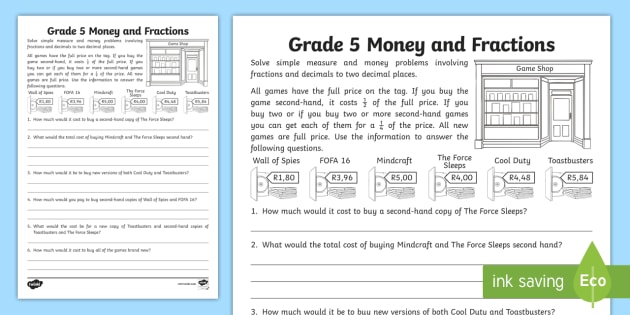
«Alive». Many years later, I remembered him, tried to restore in memory. And so it turned out «Vasyutkino Lake» — my first story for children.
V.P. Astafiev
Source: Literature. Grade 5 Textbook for educational institutions. At 2 pm / V.Ya.Korovina, V.P.Zhuravlev, V.I.Korovin. — M.:
Education, 2015. (return to the lesson)
Assignments for the story «Vasyutkino Lake»
THINKING ABOUT THE READ
1. Why is the story called «Vasyutkino Lake»?
2. What does the writer say about fishing? What kind of fish were caught in the traps?
3. How did Vasyutka get lost? What helped Vasyutka to survive, to get out of the forest (courage, ingenuity, patience, knowledge of the forest, other qualities)?
4. What was the most difficult time of wandering in the forest for Vasyutka and why?
5. What did Vasyutka remember? How did you listen to the sounds of the forest, what did you talk about with the forest dwellers?
6.
7. What illustrations would you draw for this story?
8. How does the story «Vasyutkino Lake» begin and end?
Source: Literature. Grade 5 Textbook for educational institutions. At 2 pm / V.Ya.Korovina, V.P.Zhuravlev, V.I.Korovin. — M.:
Enlightenment, 2015. (back to lesson)
LITERATURE AND FINE ARTS
Match the text from the story «Vasyutkino Lake» to the illustration in the textbook.
Source: Literature. Grade 5 Textbook for educational institutions. At 2 pm / V.Ya.Korovina, V.P.Zhuravlev, V.I.Korovin. — M.:
Education, 2015. (return to lesson)
ENRICHING OUR SPEECH
1. Pay attention to the details of the story, for example: why did mother insist that Vasyutka take a loaf of bread with him?
What do her words mean: “Here is the edge. She won’t crush you. Since time immemorial it has been so established, it is still small to change the taiga laws”?
“He has had his ears flogged more than once for wasted cartridges.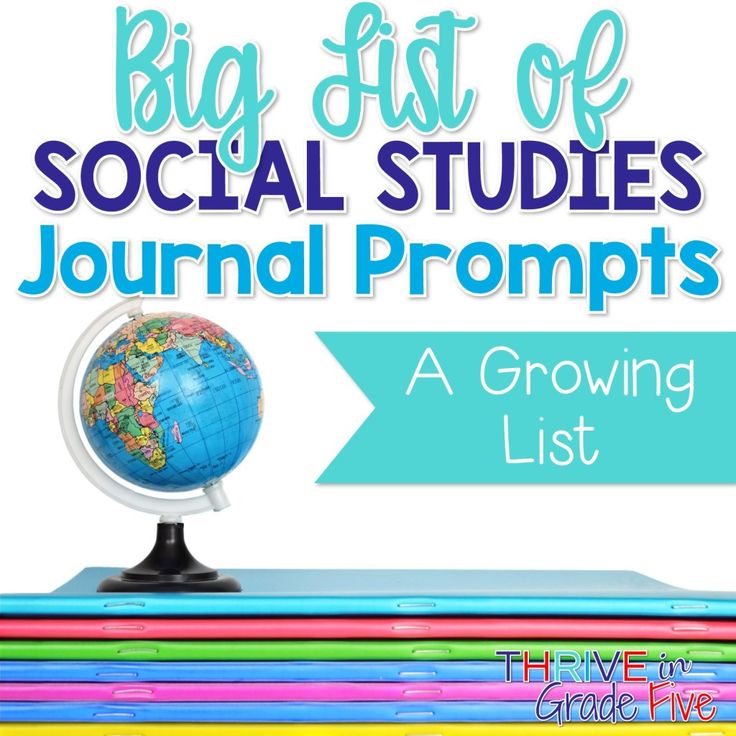
hammered into Siberians from birth” — why was there such awe? What does it mean?
“Fear began to press even harder. The boy spoke out loud again: “Okay, don’t be shy. Let’s find a hut. We must go in one direction … «» Why did Vasyutka become
speak out loud?
2. Explain the words and include them in the retelling of the text: cold drizzle, sturgeon, sterlet, were, fables, frail birches, undertaking, white fish, boat, boat,
boy, lad, varnak, fish container.
3. Went, hobbled, moved, trudged… — which of these words do you often use in your speech?
4. Frozen, cold, numb… — when is each of these words used? Give examples.
5. Tired, tired, exhausted… — think up sentences with these words.
Source: Literature. Grade 5 Textbook for educational institutions. At 2 pm / V.Ya.Korovina, V.P.Zhuravlev, V.I.Korovin. — M.:
Enlightenment, 2015.
CREATIVE TASK
Remember the stories that happened to you in the forest.
Tell about it orally or in writing, using figurative words and expressions that you remember
from the text of the story Vasyutkino Lake.
Viktor Petrovich Astafiev
Ovsyanka village. (Krasnoyarsk Territory)
Ovsyanka is the birthplace of the outstanding Russian writer V.P. Astafiev. Early left without a mother, the boy was brought up in the family of his grandfather and grandmother. The image of a grandmother
Katerina Ivanovna is one of the brightest and brightest in the entire literary heritage of the writer (the stories “The Horse with a Pink Mane”, “The Photograph in which I
no», etc.). Childhood memories formed the basis of many of the writer’s works.
In the last years of his life, VP Astafiev returned to Ovsyanka again. Here he wrote especially well. In Ovsyanka, thanks to the care and perseverance of the writer,
one of the best rural libraries in the region was built.
Many lovers of Russian literature travel to Ovsyanka to pay their respects to the writer.
Source: Literature. Grade 5 Textbook for educational institutions. At 2 pm / V.Ya.Korovina, V.P.Zhuravlev, V.I.Korovin. — M.:
Enlightenment, 2015. (back to the lesson)
Plan of the story In the village of Bunina Grade 5
Best essays and retellings
- Works
- Literature
- Bunin
- Plan of the story In the village of Bunin
- Anticipation of a trip.
- Beloved dad’s arrival.
- The road to the village.
- Riding a troika of horses.
- Arrival in the village.
- Walk in the village. Enjoyment of nature.
- Dreams of spring.
- The road to the city.
№
Summary of the work «In the Village»:
When I was a child, I thought that spring would come after the Christmas holidays. But in December there is still a real cold and gray winter.
The long-awaited day came when my beloved dad arrived, I spent the whole evening next to him. And he fell asleep in dreams that tomorrow we will go to the village.
I really enjoyed riding the train past the white fields. The car was full of people, there was noise.
So we arrived at the station. Then we were carried by three horses. It was quiet around. I sat in the sledge, leaning back, and heard only the sound of a bell and the sound of horses’ hooves. The horses ran fast, and then they took a walk. The coachman waved his whip menacingly, and the troika accelerated again.
Night fell and we arrived at our native village. I was pleased and enjoyed the starry sky.
In the morning I was running around the house looking at the frost patterns on the windows. But the mood was spring and especially joyful. After tea, I asked my father to go skiing. I went out into the fresh frosty air and got on my skis. Seeing a garden covered with frost, I wanted to go there and hurried into the thicket. And from the garden to the pond. By the pond, I liked to shake the branches of the willow and feel the frost shower on my face.
By noon it became sunny, I began to notice drops from the roofs. And I thought only about the fact that spring is coming soon. I rejoiced in nature, the village, the imminent onset of spring! All the holidays I admired the countryside and the arrival of warmth.
It was sad to leave, but I knew that summer was coming soon and I would come back here again. Dad told me that when I grow up, I will understand that I need to live closer to nature, love my native village and help the village people in their work.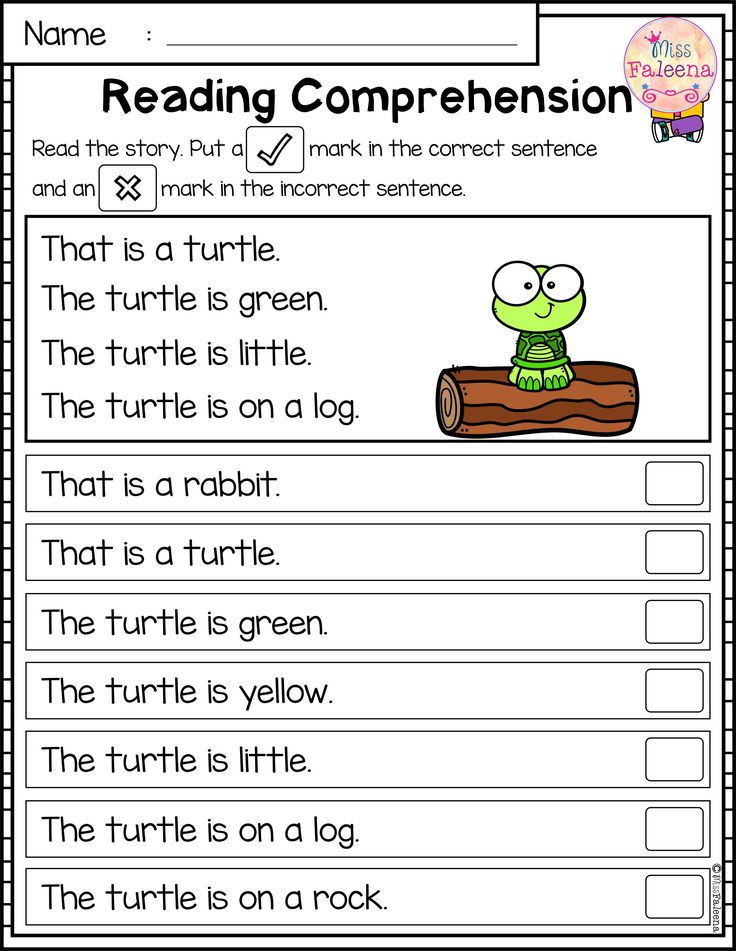
When we were passing through the village, I tried to see enough of the village. I imagined how in the spring even simple huts would look cheerful. We stopped to feed the horses, we were near a brick house where a wealthy family lived. I liked to enter such huts, because there is a special working atmosphere, everyone is working.
Again we drove through the village, and I still admired nature. So we went out into the field. I thought that the thaw had begun and imagined the awakening of nature from its winter sleep.
Also read:
← Outline of the story Dark alleys
← Plan of the story Snowdrop↑ Bunin Plan of the story Numbers →
Story plan Lapti →
Picture for the composition Outline of the story In the village of Bunin
Topics popular today
- Analysis of Astafiev’s story The photograph without me
The plot of V.
P. Astafiev’s autobiographical story is very simple (a photographer comes to the remote Siberian pre-war village of Ovsyanka at the invitation of the teacher to take pictures of schoolchildren) but, despite the seeming unpretentiousness
- To live, you need the sun, freedom and a small flower
How exactly did the great storyteller Hans Christian Andersen say: «To live, you need the sun, freedom and a small flower.» Why, then, every year the alarming alarm sounds louder and louder: «The earth is in danger!».
- Composition My favorite song
Currently, there are a huge number of musical genres, which, in turn, are divided into narrower subgenres. When I was younger, I was more of a music lover
- Why do young people want to live in the city? — final essay
Going on a long journey, we are always amazed at the expanses of Russia. Our country is inhabited by people of different nationalities and ages, skills and interests. Many cities are associated with a certain type of activity
- Analysis of the work Kalina red Shukshina
The story «Kalina Krasnaya» by Vasily Shukshin was written in 1973 and entered the golden fund of Soviet literature.
The author himself, Vasily Shukshin, devoted all his work to a common man, an ordinary worker of the country
Composition
Works
- Paintings
- Literature
- Free topic
- About Motherland
- Technology
- Russian language
Variant of answer 1
Due to the fact that the lake was filled with water in the spring, a duck could find a stable place for a nest very far away, near the forest.
Bypassing the village, they walked back to the lake.
This journey was long and dangerous.
All because hawks and foxes could easily catch little ducklings.
Mother duck looked after them, keeping her eyes on them, followed them.
When crossing the road, she also let them in front of her.
All in all it was a difficult journey.
Answer option 2
The way was long, swampy and not easy for little ducklings and their mother.
Danger was waiting for them everywhere, so the duck was tense.
She knew that many predators were hungry for them, so she kept her eyes open and was always ready to save her children.
2. What can you say about the guys who were catching ducklings? What are they: funny, cruel, stupid, unintelligent, carefree?
Option 1
The guys are not evil and cruel, because they did not understand that they harm animals.
I would describe them as stupid, unintelligent and carefree, because they only thought about having fun.
Due to their age and childishness, the children fooled around without thinking about the consequences.
But thanks to the author, who spoke about the fact that it is not good to do this, they corrected themselves and even wished them a happy journey.
Option 2
Due to their age, they were stupid, carefree and unintelligent.
But they cannot be called cruel, because they did not understand how badly they were doing.
It is good that the boys realized their mistake and quickly corrected themselves.
I don’t think they’ll do that again.
3. What would you do if you were the narrator: would you scold the guys, or would you explain to them how difficult the ducklings’ way to the lake is?
Option 1
I don’t think they should be scolded because they are small and stupid.
It is necessary to explain to them that it is bad to do this, and only cruel people do this.
After all, the ducklings are small, and the duck is alone and is very worried about them.
However, if such a story were to repeat itself, then you should scold the guys well, because naughty children need to be brought up.
Animals should not be harmed.
Option 2
I would explain the essence of such an act.
I would say that the duck and her children have the same right to exist as we do; they, just like us, want to live in peace; duck, just like our parents, worries about their children.
If children are simply scolded, they may not understand the reason why this is happening.
Therefore, there will be no positive result from swearing.
Education requires explanation.
4. What does the writer call ducklings?
Option 1
The author calls them sons and daughters.
By this he shows that they are the same as the boys.
That they are also sons and daughters of their mother — ducks, small and defenseless.
Children don’t want to be hurt, so don’t hurt the chicks.
Option 2
Prishvin says that ducklings together with a duck are a family.
They are like a human family — a mother worries and does her best to protect her children.
5. What can be said about the person on behalf of whom the story is being told?
Option 1
The person on behalf of whom the story is told is brave and smart.
He doesn’t look like little kids, he’s probably older than them.
He is smart, so he didn’t scold the guys too much, but explained that it was not good.
At the same time, the author is sentimental and kind, because when the duck and ducklings were rescued and went to the lake, he wished them good luck.
The guys started laughing at this, because they are just ducks.
But the narrator explained that animals are just like people, they need to be loved and helped.
Option 2
The narrator has a good heart, he is fair and attentive, he loves all living things very much.
Thanks to him, the duck and ducklings were able to continue on their way, and the guys realized their mistake.
I respect the narrator, because he could have just passed by, but he didn’t.
If there were more such people, then the world would be kinder.
6. Retell the story using the plan:
- The duck led the ducklings to the lake.
- The guys were catching ducklings.
- Adult order.
- The family continues their journey.
Retelling of the story «Children and ducklings» according to the plan for the 2nd grade
Option 1
Due to the fact that the lake overflowed heavily, mother duck had to build a nest far away, near the forest.
The way back to the lake was hard and dangerous.
The duck led her cubs carefully, watching their every step.
Suddenly guys appeared who started catching ducklings with hats, fooling around and laughing.
They did not understand how afraid the ducklings are and how their mother worries about them.
Then the author appeared, stopped it, and saved the animals.
He explained to the guys that what they were doing was bad and that they shouldn’t do it.
After that, the rescued family continued their difficult journey to the lake.
And the guys together with the author wished them a good journey.
Option 2
The duck decided to take her children to the lake.
It was a long journey, and the mother did not let the ducklings out of sight all the way.
The guys saw the duck family and started throwing hats at them.
Mother duck was rushing from side to side, worrying about her children.
When the guys were ready to catch their mother, the storyteller came up.
The guys were afraid of his speech and said that they would let the ducklings out.
Then, at the narrator’s order, they returned the children to their mother.
The happy and excited duck, along with the ducklings, ran further to the lake.
The narrator wished them a safe journey.
The boys followed suit.
7. Composition of your plan of retelling. Write it down in your workbook.
Option 1
1. Hard way to the lake ducks with ducklings.
2. A new danger — stupid guys.
3. Rescue of the family.
4. Continuation of the road to the lake.
Option 2
1. A duck leads her children to the lake
2. A meeting of ill-mannered children
3. An adult saves a duck family
4. A duck and ducklings continue their walk
8. Could the guys understand their act? Try to help them.
Option 1
I think that the guys were able to understand that they were wrong, because at the end, together with the author, they said goodbye to ducklings and a duck.
It is necessary to explain to them again that mother duck is very worried about ducklings, because they are still small and cannot stand up for themselves.
There are so many dangers around them, and instead of bullying them, they should be helped.
Because helping the defenseless and weak is a good deed. You can’t laugh at them.
On the contrary, one must love animals.
Option 2
Yes, the children realized that they had done wrong.
A kind storyteller helped them to do this.
No need to disturb the peace of nature.
After all, this is an integral part of ourselves.
All living things have the same right to a prosperous life as we do.
Before you do something with this or that animal, you need to put yourself in their place.
Remember: you need to love all living things, protect and take care of them. Is always!
9. Discuss with a friend. What did the writer try to explain to the children and readers?
Option 1
The author explained that ducklings are children like the boys themselves.
They also have a mother who is very worried about them.
Children certainly would not like to be offended by adults themselves.
Therefore, you need to understand that you can not laugh and mock the little ones.
With their games they only harmed the little ducklings and their mother.
The main idea that the author wanted to convey was that one should not offend the lesser ones.
They must be respected, protected and loved.
Option 2
Prishvin wanted to convey to everyone that it is not so easy for animals to live.
Animals are our little brothers.
Therefore, they must be protected and cared for.
And to offend animals, disturb their peace is very cruel.
Hint:
- Answers to the workbook Grade 2 About our smaller brothers pp. 42-44
- Brief biography of Mikhail Prishvin for presentation
- Reader’s diary based on the story «Guys and ducklings»
_______
👻 «Bezhin Meadow» in 6 minutes.
Summary of Turgenev’s story
Micro-retelling:
The lost hunter came across the peasant children by nightfall. They sat by the fire, guarded the horses and told each other terrible stories about the dead, mermaids, brownies and other evil spirits.The action takes place in the Russian Empire, in the Chernsky district of the Tula province. The narration is in the first person. The division of the retelling into chapters is conditional.
«Beautiful July Day»
Summer days, when the weather settles, are beautiful. The morning is clear and radiant. By noon, the sky is covered with light golden-gray clouds, from which a fine warm rain is occasionally sown. Before the evening dawn, the clouds disappear, and the sun sets as calmly as it rose into the sky.
Advertising:
The hunter got lost
It was on such a day that the narrator hunted black grouse.
The narrator is a man with a gun, a game bag and a dog; his name is not mentioned in the story.
In the evening he was returning home and suddenly got lost.
«But where am I?» I repeated aloud again, stopped for the third time and looked inquiringly at my English yellow-piebald dog Dianka.
Climbing a high, abruptly ending hill, he saw a huge plain below him, which was skirted by a wide river. The narrator finally recognized the area — in the district it was called Bezhin Meadow.
At the campfire at night
Right under the cliff in the dark two fires were burning, at which five peasant children with two dogs guarded the horses. During the day, the heat and flies with gadflies did not give the horses peace, so in the summer they were grazed at night.
To drive the herd out before evening and bring in the herd at dawn is a great holiday for peasant boys.
Advertising:
A tired hunter went down to the fires, said he was lost, and asked to spend the night. He lay down under a bush nearby, pretended to be asleep and listened to what the children were talking about.
The boys boiled potatoes and told stories about evil spirits.
Ilyusha
Twelve-year-old Ilyusha with a hook-nosed, long, and blind-eyed face, on which a dull, preoccupied expression froze, told the most stories.
Ilyusha — 12 years old, hook-nosed, long face, yellow hair, neatly dressed, works at a paper mill; superstitious and timid, believes in the supernatural.
The boy was dressed neatly and neatly, but poorly. Ilyusha’s large family, apparently, was not rich, so the boy, along with his two brothers, worked at a paper mill from early childhood. Ilyusha «knew all rural beliefs better than others» and sincerely believed in them.
Brownie at the paper mill
The first story was about how the clerk told Ilyusha and a group of guys to spend the night at the paper mill. Upstairs, someone unexpectedly stomped, went down the stairs, and approached the door. The door swung open, and there was no one behind it. And suddenly someone coughs! Frightened the brownie boys.
Advertising:
A talking lamb on the grave of a drowned man
Then Ilyusha told about a broken dam, an unclean place where a drowned man had once been buried. Once the clerk sent the kennel to the post office. He returned through the dam late at night. Suddenly he sees: a little white lamb is sitting on the grave of a drowned man. The kennel decided to take him with him. The lamb does not escape from the hands, it only looks intently into the eyes. The kennel became terribly, he strokes the lamb and says: «Byasha, byasha!» And the lamb bared his teeth, and answered him: «Byasha, byasha!»
The late gentleman looking for a gap-grass
Then Ilyusha told about the late gentleman he met on the same dam. The deceased was looking for a gap-grass in the «unclean place» and complained that the grave was pressing on him.
Parental Saturday
Ilyusha was sure that “you can see the dead at any hour”, and on parental Saturday you can find out who will die this year, you just need to sit on the porch, and look at the church road — who will pass by, that and waiting for death.
He told about a woman who decided to find out who would die this year, went to the porch on her parents’ Saturday and recognized herself in a woman passing by.
Advertising:
Solar eclipse and Trishka
When the conversation turned to the recent «celestial foresight», a solar eclipse, Ilyusha told the legend about an amazing person Trishka, who will come during a solar eclipse. This Trishka is amazing with the ability to free himself from any shackles and get out of any prison.
Pavlusha
Then Pavlusha also remembered the solar eclipse.
Pavlusha — 12 years old; grey-eyed, big-headed and squat, poorly dressed; bold, trying to explain the incomprehensible, resolute and inquisitive.
When the sun disappeared, the peasants were frightened, and the master’s cook broke all the pots in the oven, believing that the end of the world had come, and there would be no one to eat cabbage soup. Everyone believed that «white wolves would run across the ground, they would eat people, a bird of prey would fly, or they would even see Trishka himself.
»
The peasants went to the field to meet Trishka. Suddenly they see: a “tricky” man with a strange head is walking. Everyone rushed to hide, but it turned out not to be Trishka, but the village cooper, who bought a new jug and put it on his head to make it easier to carry. Pavlushin’s story amused the boys.
Advertising:
Suddenly, in the midst of the conversation, the dogs barked and rushed away. Pavlusha rushed after them. When he returned, he said that the dogs had smelled the wolf.
Without a twig in his hand, at night, he, without the slightest hesitation, rode alone on a wolf … «What a glorious boy!» I thought, looking at him.
Kostya
Kostya, a small, frail, very poorly dressed and shy boy of about ten with a thoughtful and sad look, told two stories.
Kostya — 10 years old, thin and short, poorly dressed; a coward, afraid of the incomprehensible, capable of sympathy, believes Ilyusha’s stories.
A carpenter meets a mermaid
The first is about a carpenter who gets lost in the forest and stumbles upon a mermaid.
She was sitting on a tree branch, calling him to her and laughing. The carpenter took it and crossed himself. The mermaid wept plaintively, and then cursed him: the carpenter would grieve until the end of his days. Since then, he has been unhappy and walks.
The merman who dragged the boy to the bottom
Kostya’s second story was about a boy who was dragged underwater by the merman, and his mother went mad with grief.
Fedya
The eldest of the boys, Fedya, a slender, handsome teenager of about fourteen, belonged, judging by his clothes, to a rich family and was in this company a «leader»: he treated his friends patronizingly, but kindly, occasionally interrupted them with good-natured laugh.
Fedya — 14 years old, handsome, well dressed; as an elder, he treats his friends patronizingly, but kindly, laconic.
Fedya remembered a woman living in his village who had been abandoned by her lover. She went to drown herself, and the waterman dragged her to the bottom and «spoiled» her there.
The woman was pulled out, but she did not come to herself, so she remained a fool.
Advertising:
Vanya
The youngest, seven-year-old boy Vanya, dozed all night under the matting «and only occasionally stuck his blond curly head out from under it.»
Vanya — 7 years old, fair-haired, curly and big-eyed; sincere, dreamy and kind, loves nature; dozing throughout the conversation.
Morning
The rest of the children fell asleep when the fires went out. The hunter also fell asleep. He left the fires when «the morning was beginning.» The hunter managed to say goodbye only to Pavlusha: he woke up when he was leaving.
Epilogue
The narrator regrets to report that in the same year the «nice guy» Pavel died: he fell from his horse to death.
Yulia Peskovaya retold.
The retelling is based on the edition of the story from Turgenev’s collected works in 30 volumes (M.: Nauka, 1979).
Found an error? Please edit this retelling in the People’s Briefly.Plan of the story «In bad company» Korolenko Grade 5
Useful
Author J.G. Reading 4 min Updated by
Make a plan for retelling the story “In Bad Society” Grade 5 briefly on the literature of each chapter, you can write a short, detailed, citation.
Contents
- Outline of the story “In Bad Society” Korolenko
- Outline of the story “In Bad Society” Grade 5
- “In Bad Society” plan by chapters
Chapter 1 C. The ruins of the mother 9019 9018
2. Prince-town
3. Castle on the island
4. Expulsion from the castle
5. New house
6. Tyburtsy Drab
7. Adopted children Tyburtsy
Chapter 2 «Me and my father»
1. Vasya’s life after the death of his mother
2. Father’s relationship with Vasya
3. Vasya becomes lonely
4 Vasya’s sister Sonya
5.The boy goes to the city
Chapter 3 «A New Acquaintance»
1. Exploration of the chapel
2. Escape of the boys
3. Whispers of children
4. Appearance of a boy and a girl
5. Conversation with future children
6. Acquaintance
7. Friends seeing Vasya off
8. Conversation with his father
Galava 4 «The acquaintance continues»
1. Gifts for new friends
2. Comparison of Sonya and Marusya
3. Vasya tries to arrange a game
4. Valek talks about , Gray Stones”
5. Talking about Vasya and Valek’s fathers
6. Vasya’s positive look at his father
Chapter 5 “Among Gray Stones”
1. Vasya’s meeting with Valek in the city
2. Vasya is waiting for Valek at the cemetery
3. Valek Anoints Dungeon
4. Boys talking about poverty and theft
5. Vasya’s new feelings
Chapter 6 «Pan Tyburtsy appears on the stage»
1.Vasya visiting friends
2. He decided to play hide and seek
Vasya
4. Tyburtsy orders to be silent about the dungeon
5. Vasya’s meeting with his father in the garden. Lies to father
Chapter 7 «In autumn»
1. Marusya’s illness
2. Marusya comes to life
3. Tyburtsy’s reflection
Chapter 8 «Doll»
1. Sonya’s doll
2. An attempt to take the doll
3. Questions of the father about the doll
4. Return of the doll from Tyburgation
5. Money for Tybouris
6. Farewell with Marusia
CONCLUSION
1. DISCOUNTION TYBURTISION AND VALKI
2. Marusina grave111111111111111
Outline of the story “In Bad Society” Grade 5
1 — Ruins
- Death of Vasya’s mother;
- Description of Prince-town;
- Count’s castle on the island;
- Janusz drives out unwanted people from the castle;
- The castle became disgusting to Vasya.
2 — Problematic natures
- Castle exiles looking for a new home;
- Description of the old «professor»
- Drunk official Lavrovsky;
- «General» Turkevich;
- Pan Tyburtsy and his children;
3 — Me and my father
- Description of Vasya’s life after the death of his mother;
- Father-son relationship;
- Memories of mother;
- Nobody needs Vasya;
- Sonya and Vasya;
- Vasya is a street boy and a tramp.
4 — I make a new acquaintance
- Old chapel and abandoned cemetery;
- An unexpected incident in the chapel;
- Acquaintance with Valek and Marusya;
- Vasya returned home;
5 — Acquaintance continues
- Friendship with underground children;
- Vasya compares Sonya and Marusya;
- Vasya wants to play with Marusya;
- Marousi gray stone;
- Valek tells about Tyburtsy and Vasya’s father;
- Vasya sees his father with different eyes.
6 — Among the gray stones
- Valek finds Vasya in the city;
- Vasya is waiting for Valek at the cemetery;
- Dungeon — the house of Valek and Marusya;
- Valek’s story about poverty and theft;
- Vasya’s suffering.
7 — Pan Tyburtsy appears on the stage
- Vasya decided to continue his friendship;
- Tyburtsy learned about the friendship between Vasya and the children of the underground;
- Conversation between Tyburtsy and Vasya “your road ran through ours”;
- Beggars’ dinner;
- Fear that the father will find out about Vasya’s friendship with the beggars.
8 — In the autumn
- Marum started to get sick;
- Janusz’s visit to Vasya’s father;
- Arguments of Tyburtius about judges and laws;
9 — Doll
- Marusya got worse;
- Sonya gives Marusa her doll;
- Father’s suspicions;
- Difficult conversation with father about a doll;
- Arrival of Tyburtsy and return of the doll; Phone:
- Conversation between Tyburtsiy and his father;
- News of Marsui’s death;
- Father loves Vasya again;
- Order for Tyburtsiy;
- Death of Marusya.
10 — Conclusion
- Disappearance from the city of Tyburtsiya and Valeka;
- Sonya, Vasya and father visit Marusya’s grave.
«In bad society» plan by chapters
Plan «In bad society» 1 chapter
- Death of Vasya’s mother
- Prince-gorodok.
- History of the dilapidated castle and chapel.
- The castle is a refuge for poor people.
- Janusz drives out unwanted people from the castle;
- The castle scares Vasya.
Plan 2 of the chapter «In Bad Society»
- The expelled beggars gained a new house in the chapel
- Description of the residents of the chapel dungeon
- The head of the “Dark Personality” Tyburgations Drabs
- Takers Tyburgation Dranis
9058 9000 Plan 3 of the chapter “In the bad society”
6 66666666666 after the death of his mother.
- Father’s relationship with Vasya.
- Horror of loneliness.
- Sonya is Vasya’s sister.
- Vasya goes to the chapel.
Outline of Chapter 4 «In Bad Society»
- Exploration of the chapel.
- The flight of the rest of the boys.
- The tramp of children.
- The appearance of a boy and a girl.
- New friends see Vasya off.
- Conversation with a friend.
Outline for chapter 5 «In bad society»
- Treating new friends.
- Comparison of Marusya with Vasya’s sister.
- Vasya is trying to arrange a game.
- Valek talks about the «stone»
- Talking about the fathers of Valek and Vasya.
- Valek’s praise of Vasya’s father
Essay based on Korolenko’s story In a bad company Grade 5
- Works
- In bad company
/
org/Breadcrumb»> Literature/
The story «In Bad Society» interested me immediately — even with its title alone. What kind of society is this?
It turns out that ruins are located next to a quite decent town. The poor live there. One day, their disputes and enmity among themselves led to battles. The old servant, whose owners once lived in the ruins (more precisely, then it was a beautiful castle), decided that the «decent» were worthy to stay here. Beggars (not in caps) are recognized as bad society. For example, an old scientist or an angry accuser, or a reader of ancient tragedies — all are «bad».
The main character Vasya accidentally gets into this society. Vasya sees that they are stealing, he, of course, does not like it. But he understands that they do it to survive.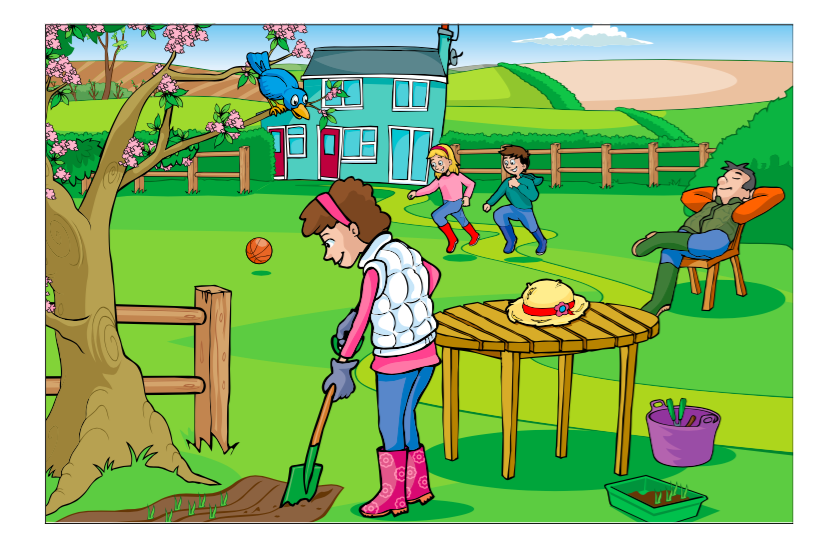
Vasya, in order to alleviate her suffering, asks his sister for a doll. The sister agrees. The sick girl is really happy. It was only at home that the father noticed the missing doll. Everyone decided that Vasya stole it, because he is associated with bad company.
I think that it is necessary to take into account not stereotypes and opinions of people who can make mistakes, but look at people’s actions for yourself. The inhabitants of the town are afraid of everything. They even need «comfortable» beggars who fit into the system and do not disturb public peace. However, Vasya has the courage to be with real people. By the way, they also slander him because of this friendship. He is already a vagabond and a juvenile delinquent .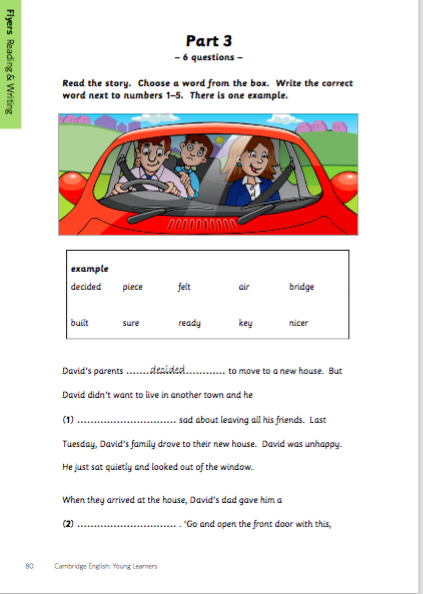
This is a serious, somewhat scary, but very good story.
Option №2
Vladimir Galaktionovich Korolenko is a great Russian writer. Having chosen an uncomplicated genre of a story for his work, he encapsulates all his ideas and thoughts in it. An ardent protest against the injustice of life sounds in all his works.
The story «In Bad Society» also touches upon life’s problems. The work is written in the first person. The protagonist of the story is the boy Vasya, the son of a judge who lost his mother early. Vasya is deprived of his father’s attention, feels his «uselessness», cannot find a common language with a loved one. The boy needs understanding, support from his father. But it turns out that Vasya is knocking on a closed door. The father is completely focused on his work, on his own thoughts.
The boy tries to find friends who will be able to hear him.
Vasya cries at night because he feels sorry for Marusya. He sees how she «fades away.» The boy steals a doll from his younger well-groomed sister and brings it to Marusa so that the girl would smile at least a little. Vasya knows that this will not save her from the disease, but he still commits an offense for the sake of a few minutes of Marusya’s joy.
The father is furious because of the theft committed by Vasya. But, having learned why the son did this, he begins to treat Vasya differently.
The family is reunited at the end of the story. Both Vasya and his father come to the conclusion that they are the closest people to each other, that it is necessary to appreciate this before it’s too late.
Composition reasoning In a bad society based on the story
Having become acquainted with VG Korolenko’s story “In a bad society”, I suddenly realized what a wonderful childhood I had. Living in a family where everyone loves, understands and supports you is real happiness!
Unfortunately, not everyone is so lucky. The writer depicts in his work the difficult life of children of various social strata. The reader becomes a witness to the difficult relationship between father and son in the family of a judge. But the fate of the children living in the dungeon turns out to be truly tragic.
Who are they, the heroes of the story, after reading which you will never be able to help but think about how many disadvantaged children in the world suffer from the imperfection of the social order. After reading the work, the question arises in my head: “Why is society so arranged that some have everything, while others are deprived of the elementary?”
The main images of the story are the brother and sister Valek and Marusya, forced by virtue of their poverty to vegetate among the «gray stones», in dampness and squalor. Their life can rather be called existence. And perhaps a struggle for survival. Each new day brings new challenges for the heroes.
Marusya is a four-year-old girl suffering from a serious illness. It is not easy to see how the life of this little man is fading away. Marusya is always sad, constantly crying. She is wild, because she is not used to the company of strangers. The girl’s only joy is her brother and Tyburtius.
Valek is a teenager who is destined to grow up early.
Vasya, the judge’s son, plays a very important role in the story. He lost his mother early, because of which his father fell into an endless depression. The judge does not seem to notice his son. And if he pays attention to him, he will certainly be rude to the child. The boy feels lonely and useless. And only acquaintance with members of the «bad society» Valek and Marusya allows the best features of his character to be revealed.
Vasya is a kind and brave boy. He knows how to be compassionate. To alleviate the suffering of Marusya, he begs his sister Sonya for her doll. It was a special doll, a gift from her late mother.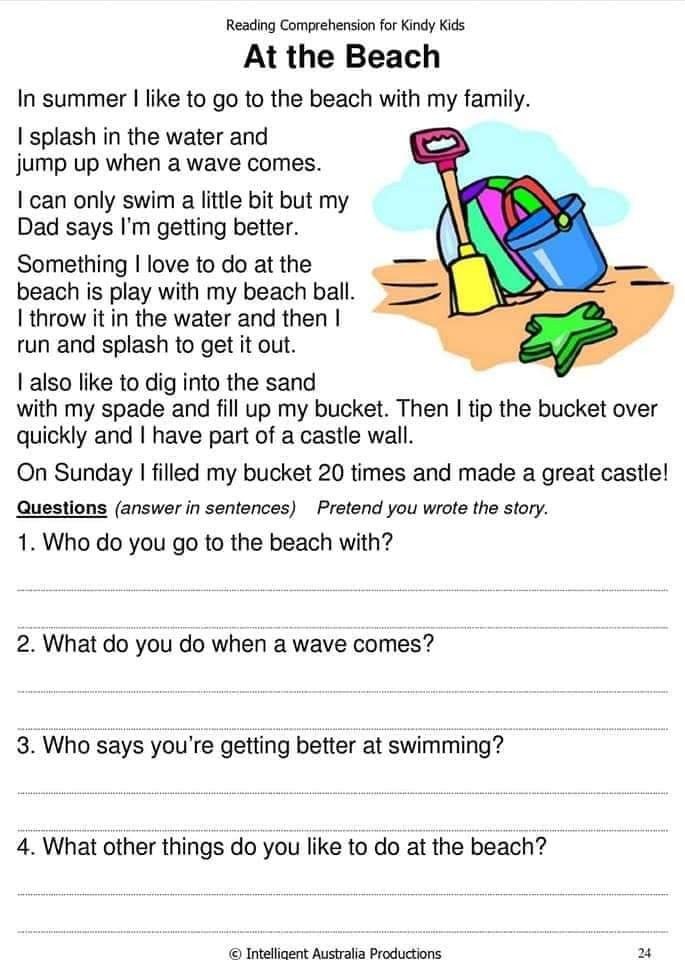
The story with the doll caused Vasya a lot of trouble. However, it all ended with the fact that the father, having learned the whole truth, became proud of his son.
The story «In Bad Society» is very interesting and instructive.
5th grade, 6th grade
Others:
← Little man with a big heart↑ Literature Prisoner of the Caucasus by Pushkin →
In a bad society Reading now:
- Rebellious heart image of Bazarov composition grade 10
The image of Bazarov is one of the most complex and at the same time predictable, complete. Nihilism, taken as a rebellion against the whole world, is a defensive reaction against the inevitable approaching end. Bazarov himself admits that he is not a creator, not a creator,
- Moscow and Muscovites in the novel Master Margarita essay
The action of the novel «The Master and Margarita» takes place in two timelines and in two different cities — in ancient Yershalaim and in Soviet Moscow of the 30s.
The actions taking place in Yershalaim are the events described by the Master in his novel.
- An essay on mercy and compassion
Mercy and compassion: what is behind these words? Are they just epithets or inherent in us, our soul?
From childhood, everyone is taught to help their neighbor, help out a friend, give a hand to someone who is in trouble - Arguments for the composition The inner world of man Grade 9 15.3
The inner world of a person consists of thoughts, feelings, experiences and desires of individuals. Each person has his own inner world. Each individual has an individuality. The fact that only she has one, some special feature,
- Composition based on the painting by Polenov Grandmother’s garden Grade 8
Palenov Vasily Dmitrievich (1844-1927) Russian artist, master of historical landscape and genre painting. His paintings are exhibited in the Tretyakov Gallery. They are remembered because they reflect clear skies, temples, ancient mansions,
- Composition Dad gave Vita a knife Grade 6
A boy named Vitya lived in our yard.

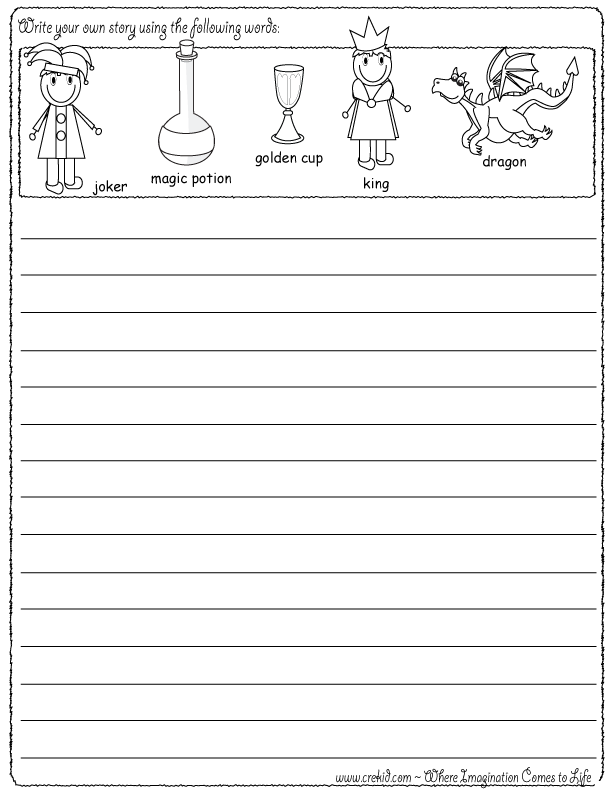 ”
” What will you do in your lesson?
What will you do in your lesson?
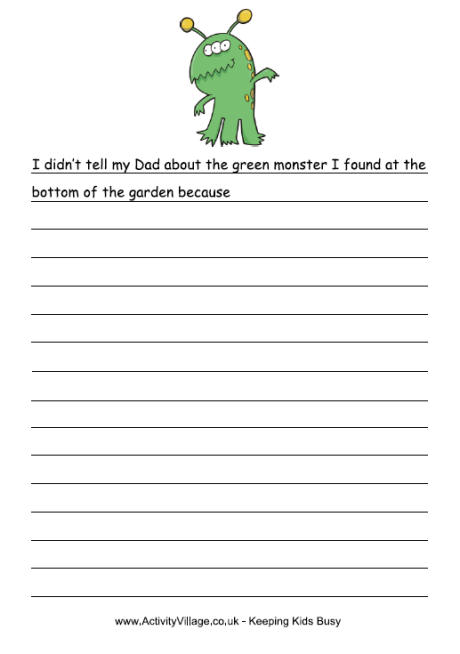 g. happy, sad, angry, scared). What made you feel this way?
g. happy, sad, angry, scared). What made you feel this way?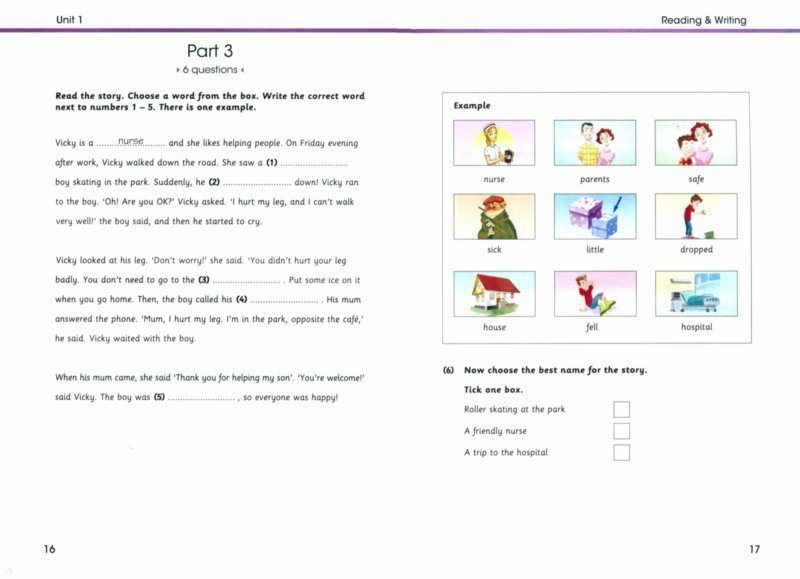
 Make sure your reader can imagine what it tastes like!
Make sure your reader can imagine what it tastes like!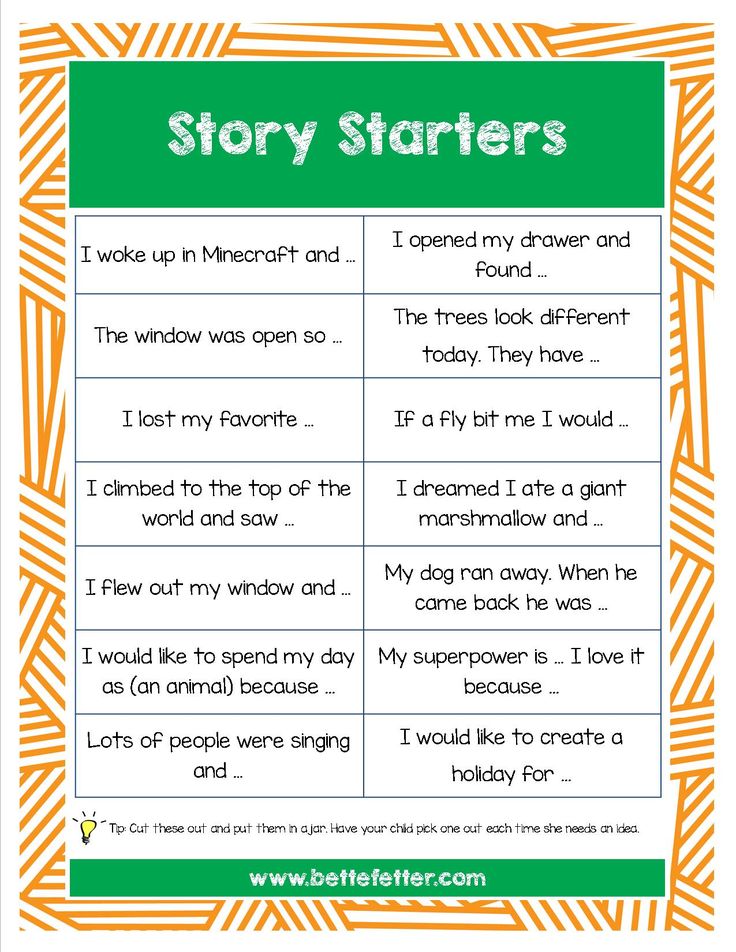 Write about what happens in the first episode.
Write about what happens in the first episode.

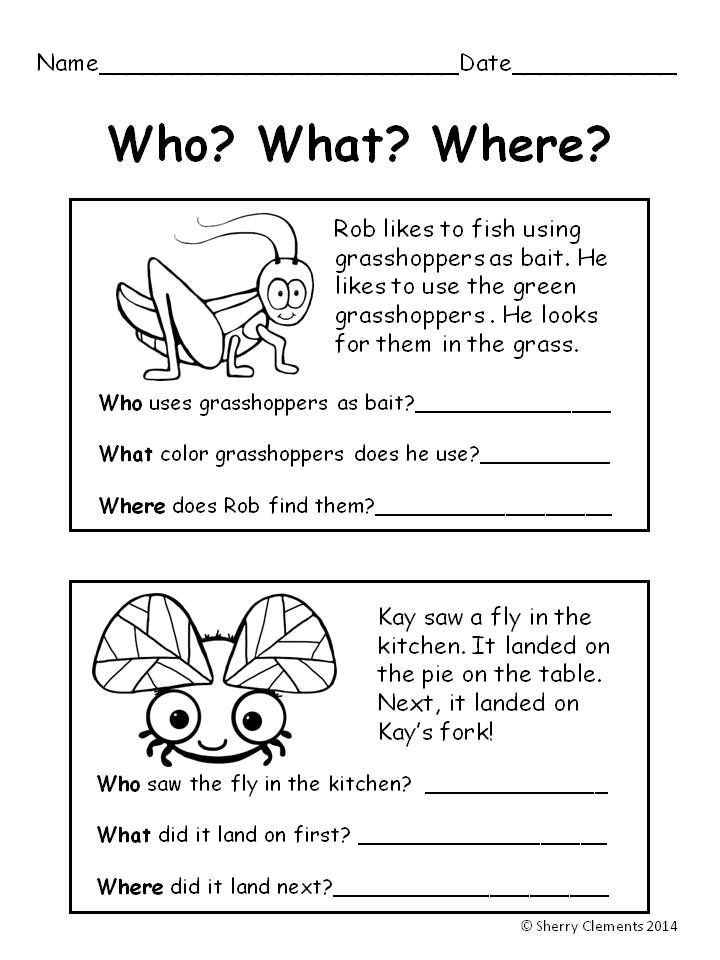
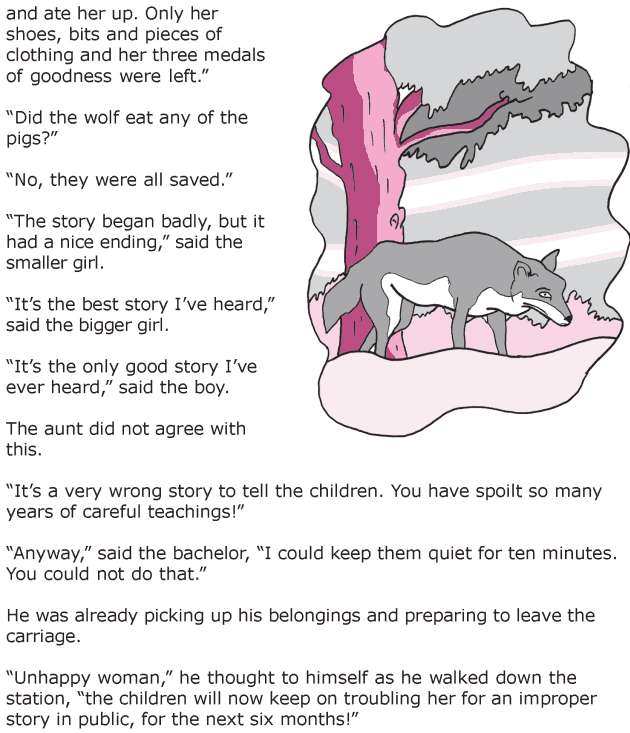 Was it just me, or was Buddy getting bigger every day?
Was it just me, or was Buddy getting bigger every day? Patrick’s Day
Patrick’s Day

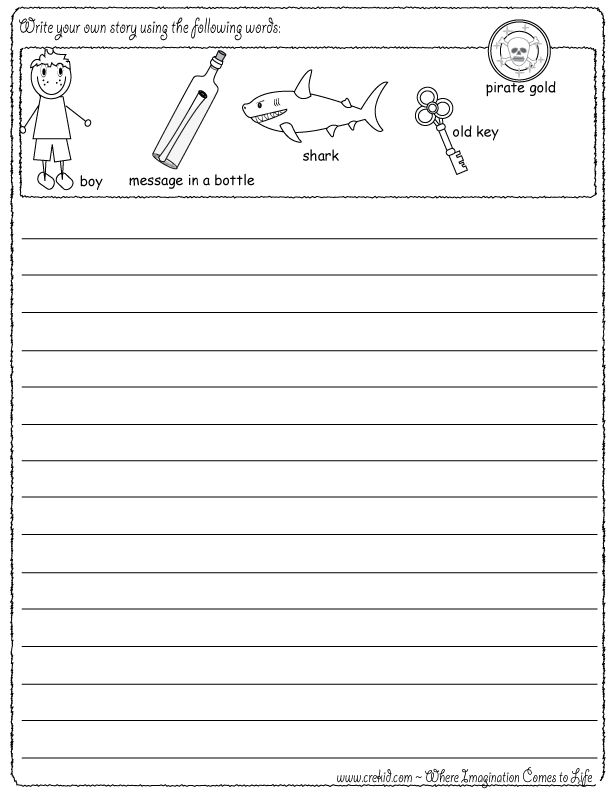

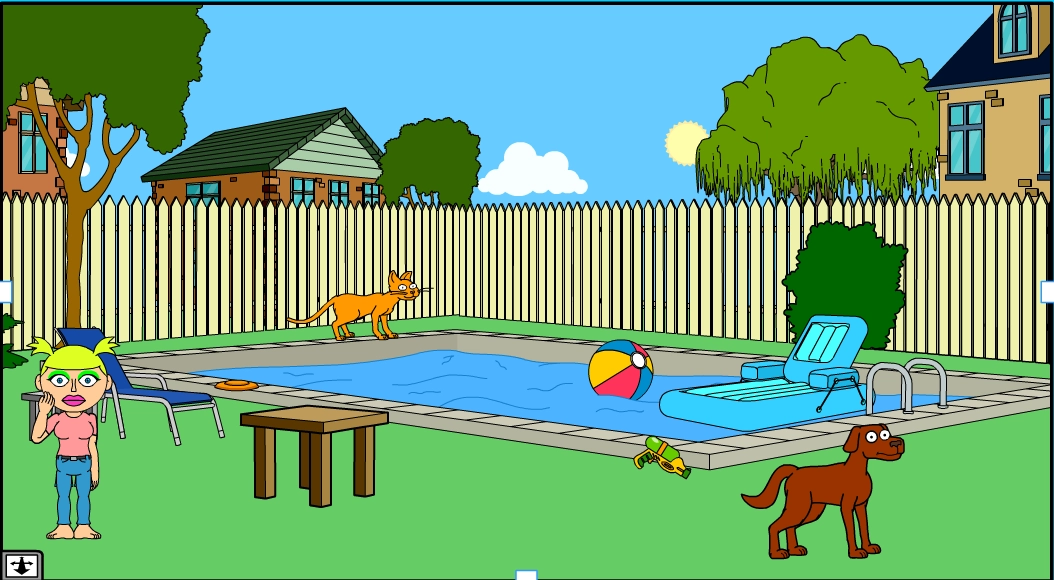




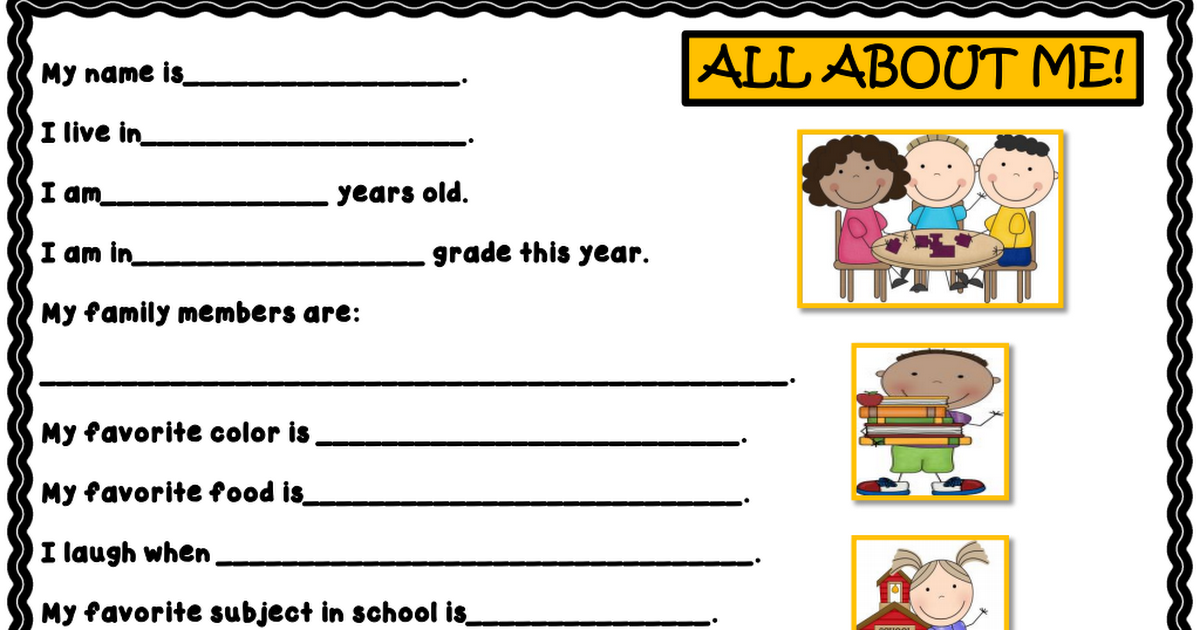


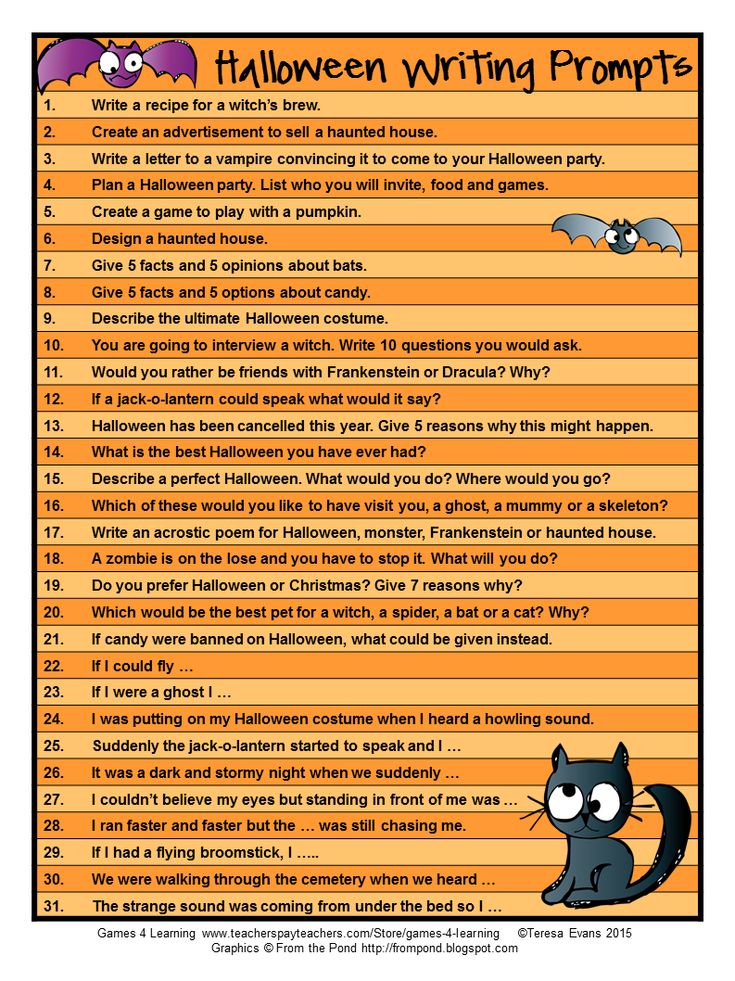
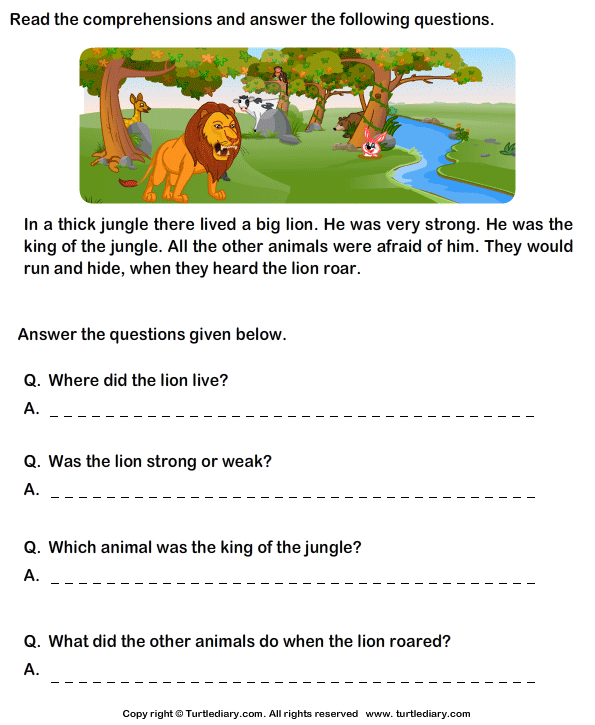

 If you don’t have a nickname, choose one for yourself and explain why you chose this nickname.
If you don’t have a nickname, choose one for yourself and explain why you chose this nickname. Write a story about your adventure.
Write a story about your adventure.
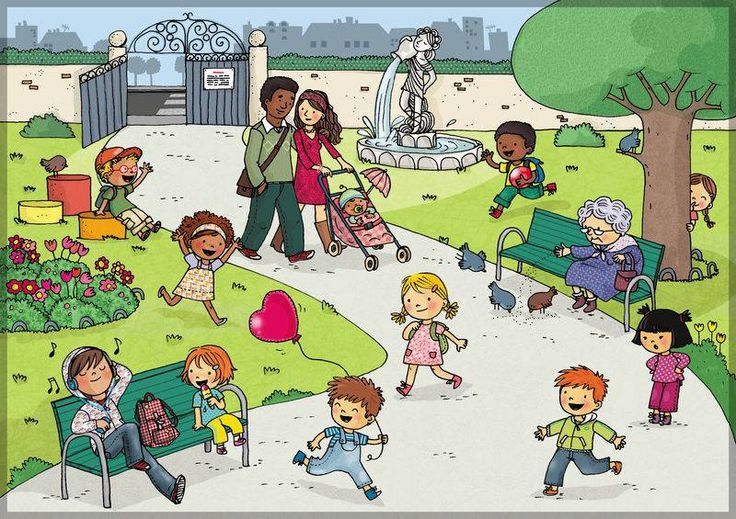
 What special features would this car have that cars do not have today?
What special features would this car have that cars do not have today? V. show, who would you be?
V. show, who would you be? 

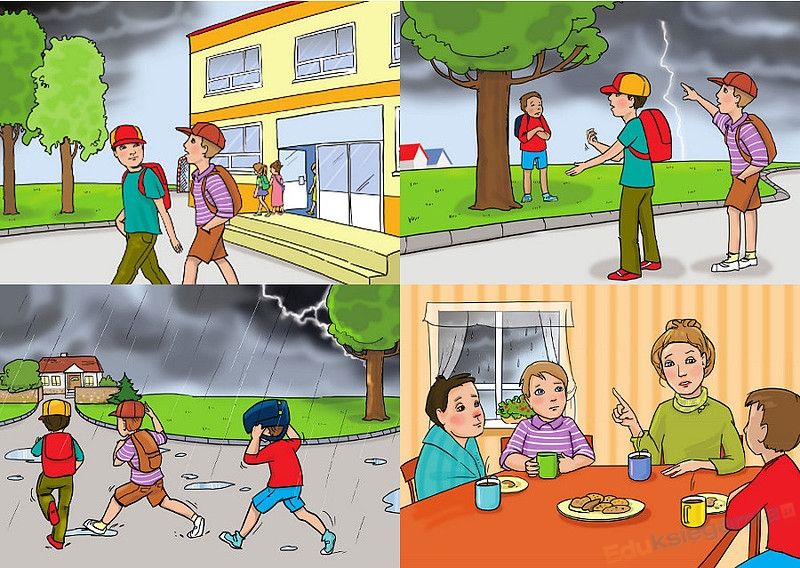 ..
..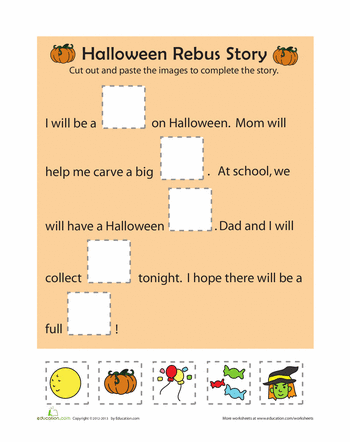
 P. Astafiev’s autobiographical story is very simple (a photographer comes to the remote Siberian pre-war village of Ovsyanka at the invitation of the teacher to take pictures of schoolchildren) but, despite the seeming unpretentiousness
P. Astafiev’s autobiographical story is very simple (a photographer comes to the remote Siberian pre-war village of Ovsyanka at the invitation of the teacher to take pictures of schoolchildren) but, despite the seeming unpretentiousness  The author himself, Vasily Shukshin, devoted all his work to a common man, an ordinary worker of the country
The author himself, Vasily Shukshin, devoted all his work to a common man, an ordinary worker of the country 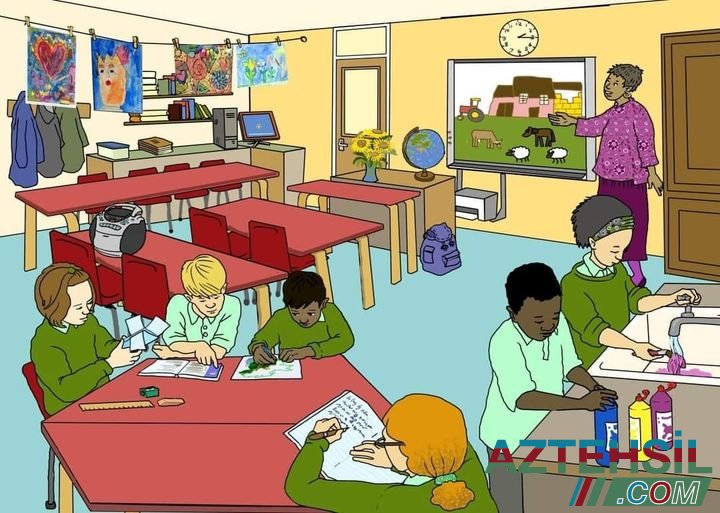

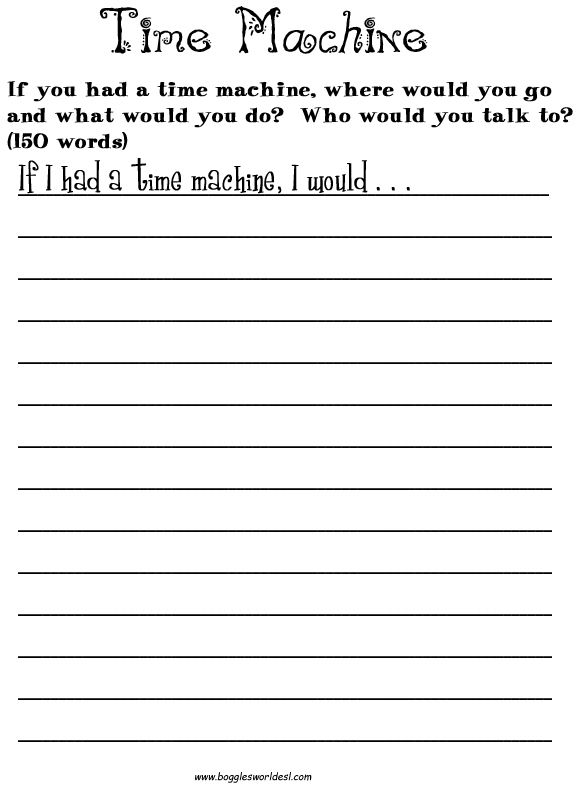


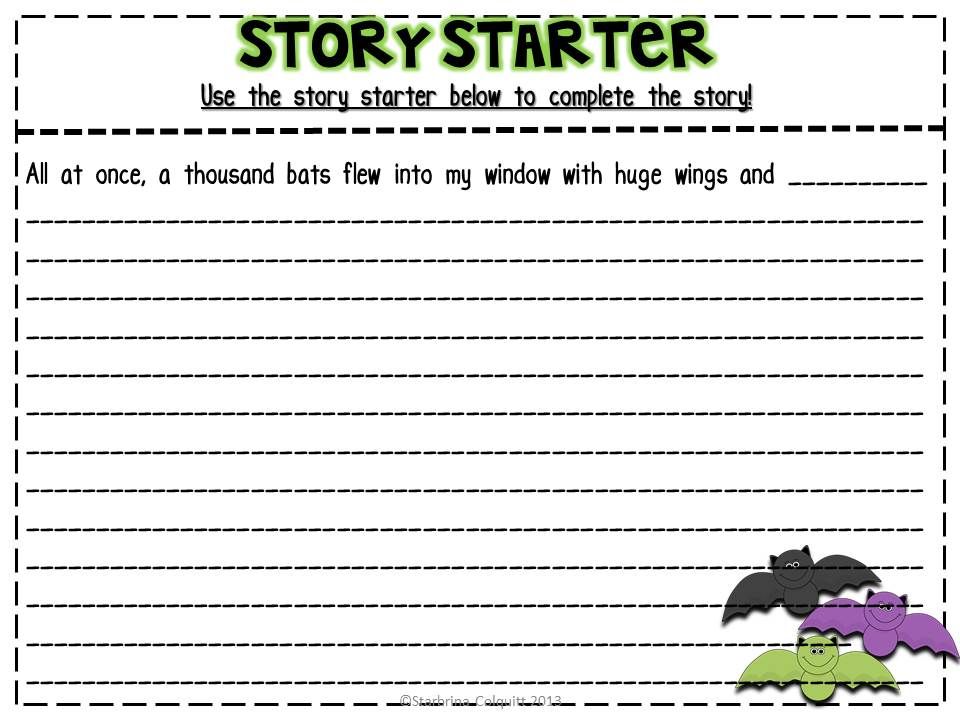

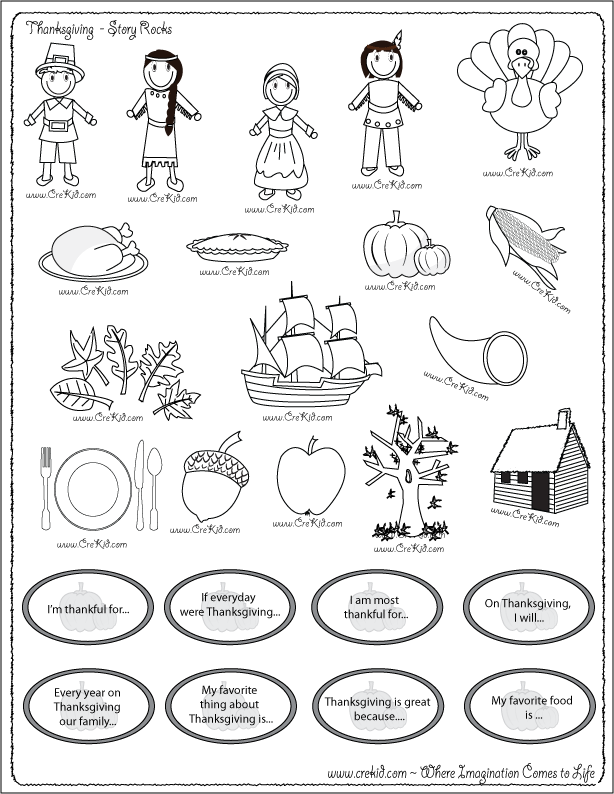
 Summary of Turgenev’s story
Summary of Turgenev’s story



 He told about a woman who decided to find out who would die this year, went to the porch on her parents’ Saturday and recognized herself in a woman passing by.
He told about a woman who decided to find out who would die this year, went to the porch on her parents’ Saturday and recognized herself in a woman passing by. 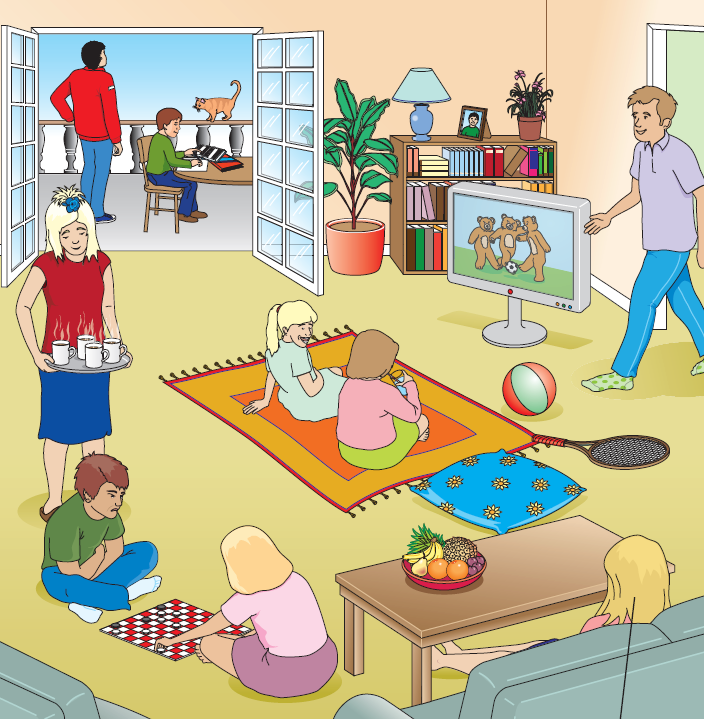 »
» 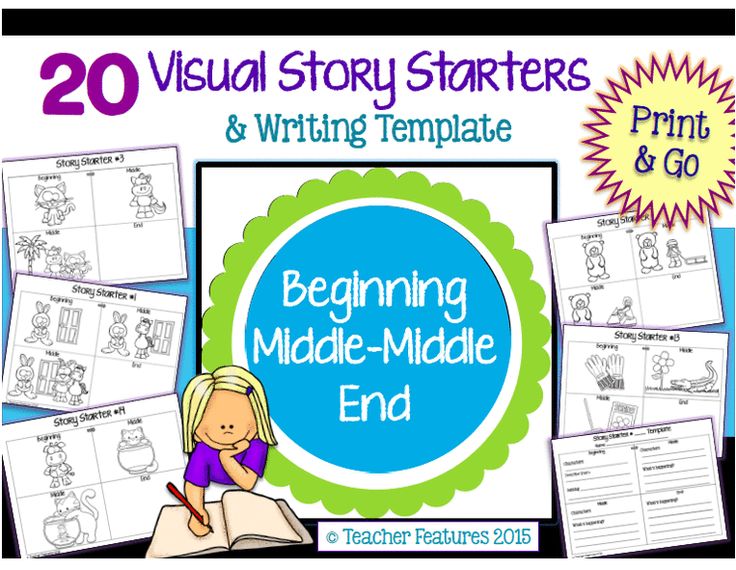 She was sitting on a tree branch, calling him to her and laughing. The carpenter took it and crossed himself. The mermaid wept plaintively, and then cursed him: the carpenter would grieve until the end of his days. Since then, he has been unhappy and walks.
She was sitting on a tree branch, calling him to her and laughing. The carpenter took it and crossed himself. The mermaid wept plaintively, and then cursed him: the carpenter would grieve until the end of his days. Since then, he has been unhappy and walks.  The woman was pulled out, but she did not come to herself, so she remained a fool.
The woman was pulled out, but she did not come to herself, so she remained a fool. 
 The boy goes to the city
The boy goes to the city  Vasya visiting friends
Vasya visiting friends 

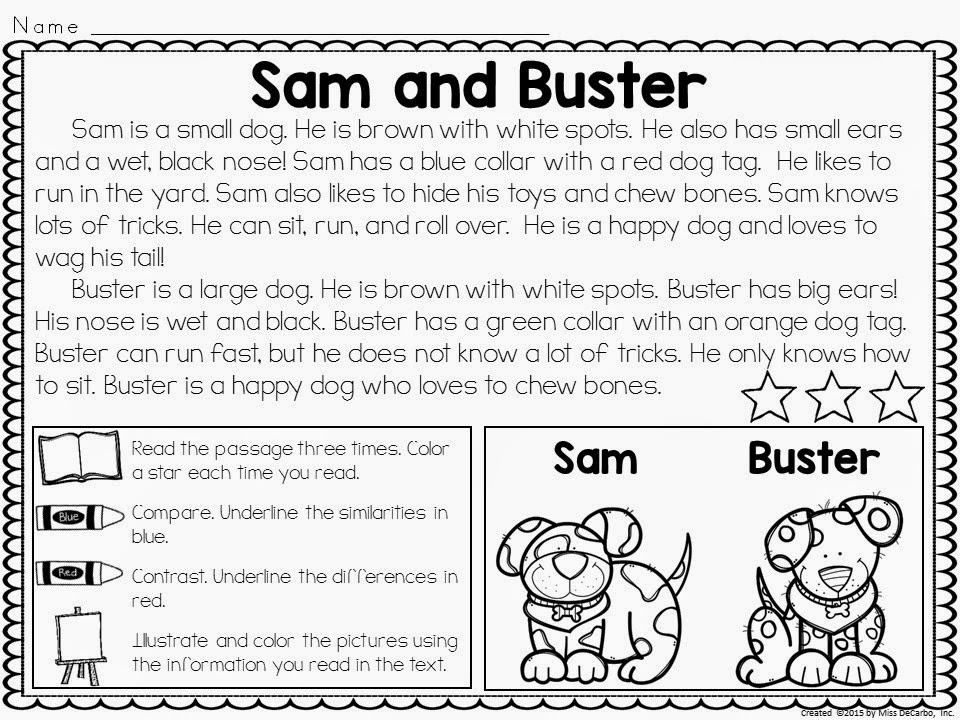
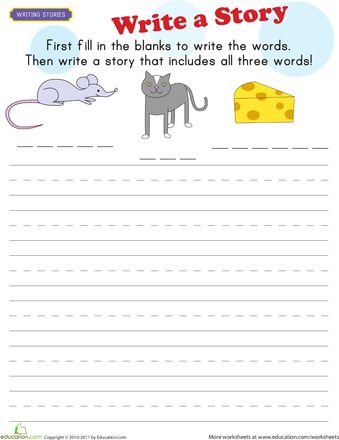
 The actions taking place in Yershalaim are the events described by the Master in his novel.
The actions taking place in Yershalaim are the events described by the Master in his novel. 